Note: This is an article in-progress of all Stephen King books ranked, updated constantly as more books are read and ranked.
Stephen King is one of the true household names, whether you’re a fan or not. It’s a name that is so ingrained in the cultural ethos that everyone has encountered (or at least heard of) one his novels, short stories, or movies.
It, Carrie, The Shining, The Shawshank Redemption, The Green Mile… the list is endless. Well, not quite endless but pretty damn long. As of 2024, Stephen King is 76 years old and his bibliography consists of around the same number of works as his years of being alive.
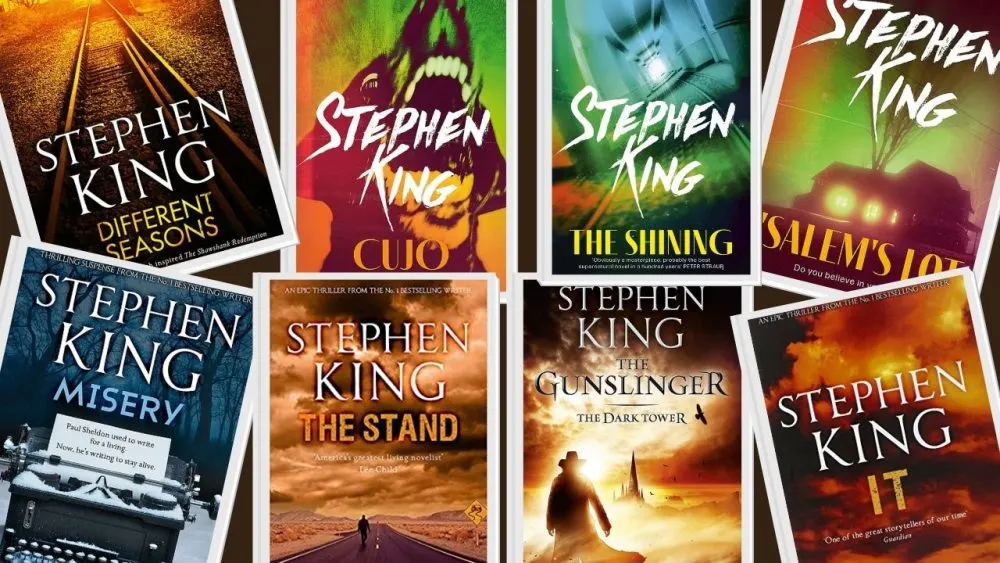
A novel or short-story collection for every single year of his considerably long life. Being that prolific means that they aren’t all masterpieces, but that’s why this article exists. Born in 1947 and having released published works since the early 70s, Stephen King has been known as The Master of Horror for decades now.
He has created some of the greatest villains in the history of storytelling, from Pennywise the dancing clown to The Overlook, a literal haunted hotel.
Read More: The Best Horror Books (Not by Stephen King)
His villains are often terrifying yet deep and often amusing. But for every supernatural ghoul, there is also usually a darker meditation on a serious issue. Alcoholism, abuse, disability, mental illness, and ageing are just some of the countless topics found in most of King’s work.
I won’t pretend that King is improving, or is even maintaining his level of quality. His rate of hits has slowed down a lot, but only a few of his creations have been absolute clunkers. This means that looking at all Stephen King books ranked doesn’t simply involve going in chronological order backwards, as some may think.
It’s been around ten years since his last masterpiece but his record has shown that they can happen when you least expect it. When you’ve written 70+ published works (and that doesn’t include his screenplays) having an off-day is understandable.
Read More: All Neil Gaiman Books Ranked
Every Single Stephen King Book Ranked (From Worst to Best)
Even though many of his “Constant Readers” (as he dubs them) have read one or two of his stories (or ten), the sheer amount of novels and collections is a lot of pages for one person to get through.
However, that’s where I come in. It’s on my bucket list to read all of it. Every single page. I’m up to around fifty so far but still have a way to go. Hopefully, this article of all Stephen King books ranked will help you be able to skip the pawns and go straight for the King!
Please note that everything you are about to read is my sole opinion and will only contain the absolute minimum when it comes to spoilers. Each item on this list has been read once, and once only, so my view could be slanted by how old I was when i read them or my mood at the time, etc.
It’s entirely possible that this list of all Stephen King books ranked could change in the future but this is how it looks so far. I will also add the new books as i read them. And, in terms of how ranking short story collections work, i rank them in order of quality/quantity of good stories and not how many bad ones there are or just how bad. Here we go!
Here are all Stephen King books ranked — from worst to best!
The Outsider
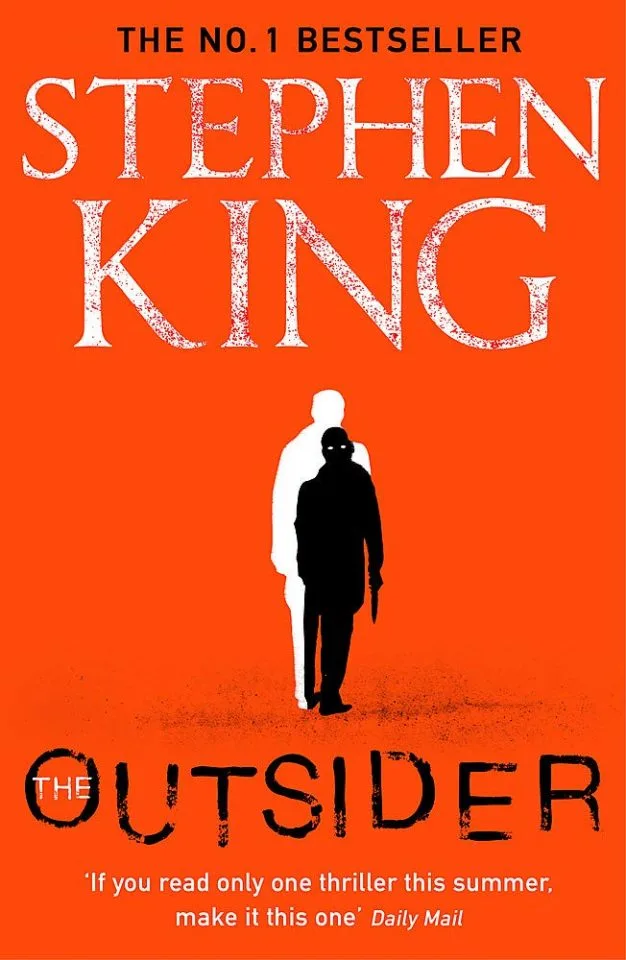
Terry Maitland, a well-loved member of a community is arrested for the rape and murder of a young child. There are numerous witnesses who saw Terry with the victim and the DNA evidence seems overwhelming. However, there is also unequivical evidence found that puts Terry hundred of miles away and gives him an alibi. Which evidence is true? And what if all of it is true?
Here it is. Le Grande Stinker. An absolute cesspit of uninteresting characters and the most horrifically boring plot King has ever put to paper. The idea behind the story really excited me. The idea that such conflicting plot points can happen and both of them be true?
Sounds fascinating to me. But this is the first third of the novel only. As this section comes to an end, the idiocy begins. The rest of the tale is sluggish and unsatisfying to a degree that King has never shown before. If this was how King was due to end his career, not with a shout but with a fart, i would rather it just end and pass on to more talented individuals. But, as we’ll soon see, there is plenty of life left in the master of horror.
If It Bleeds
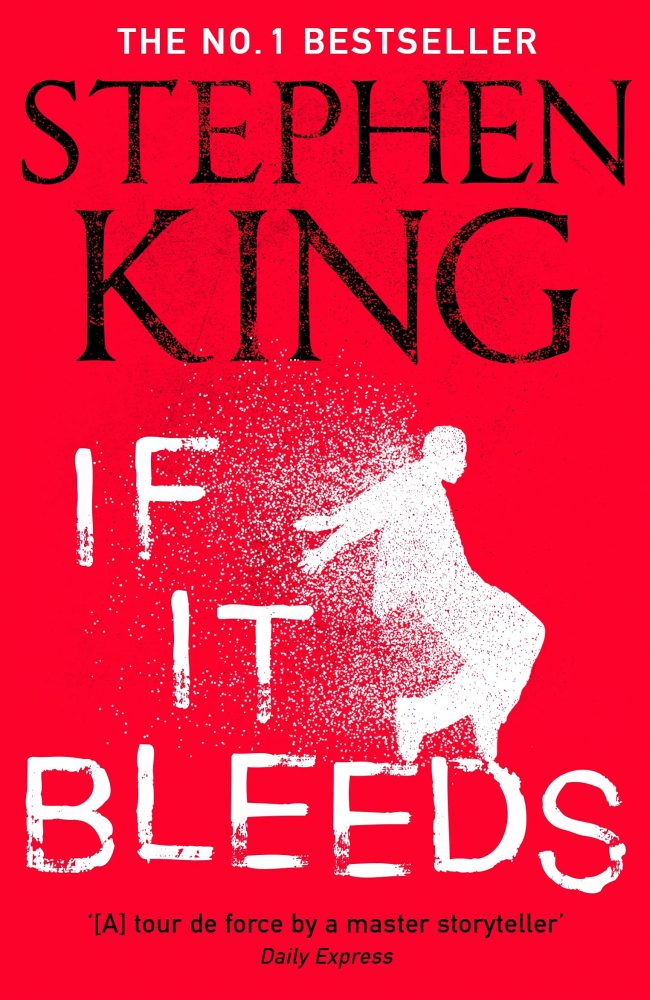
Mr. Harrigan’s Phone — A teenager repays a kind favour by purchasing a cell phone for his much-older technophobe frend. When the old man dies, his cell phone still appears to be getting some use. The Life of Chuck — A story of death told in reverse about how we don’t realise our impact on the world.
If It Bleeds — A bomb decimates a school and one amateur detective thinks she knows the culprit – but this someone is supposed to be dead. Rat — An author creates isolation so he can finally finish his novel. However, the loneliness creates some chilling symptoms
If It Bleeds is the newest short-story collection by King and by far the worst. The title story follows on from The Outsider which you may have just read my thoughts on. There are far too many ideas here that have been recycled from other King works. These stories vary in quality between average and dire and the less said about them, the better. This collection reeks of a money-grab. Stay away.
The Colorado Kid
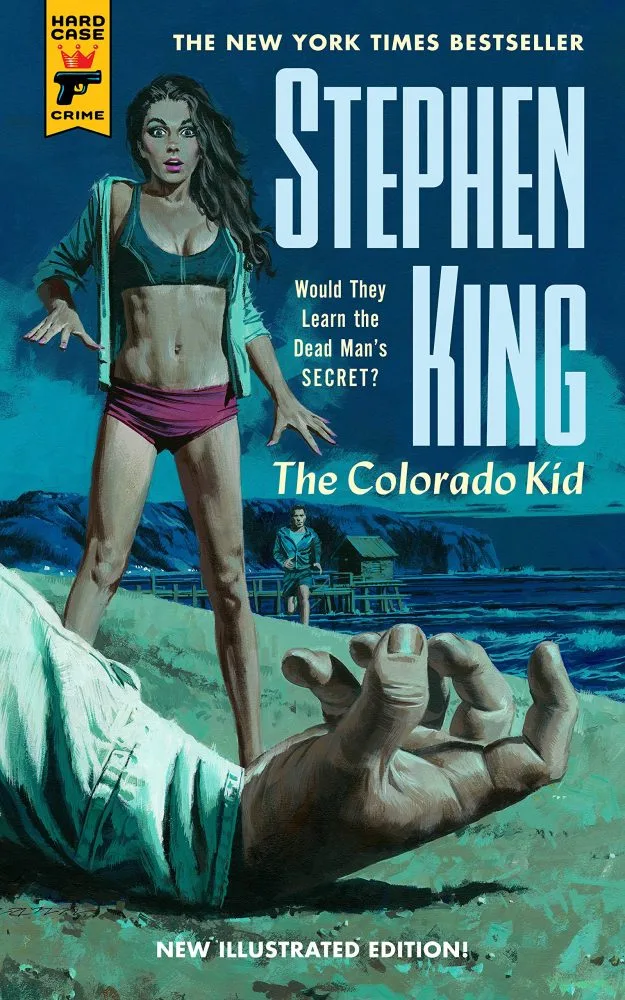
Two aging journalists test the abilities of their intern to discover if she is worthy of taking up the mantle when they retire. The regale her with the story of the town’s most famous unsolved crime, a tale which involves a dead body with no witnesses or motive as well as random and often contradictory clues. Their discussion has hidden depths and will determine the future of their company.
So i tried to give a synopsis here that may interest someone but honestly? The Colorado Kid is awful. It isn’t interesting for the most part and the ideas that ARE interesting go absolutely nowhere.
As per usual, i won’t spoil too much but the entire novel feels pointless as the answers you seek are not necessarily the answers you receive. I enjoy a “rug-pull” as much as the next person but i didn’t even feel betrayed by King here — it was worse than that. I felt bored. Thankfully, The Colorado Kid is less than 200 pages. Avoid.
Read More: Inspiring Quotes About Reading
The Dark Tower VI: Song of Susannah
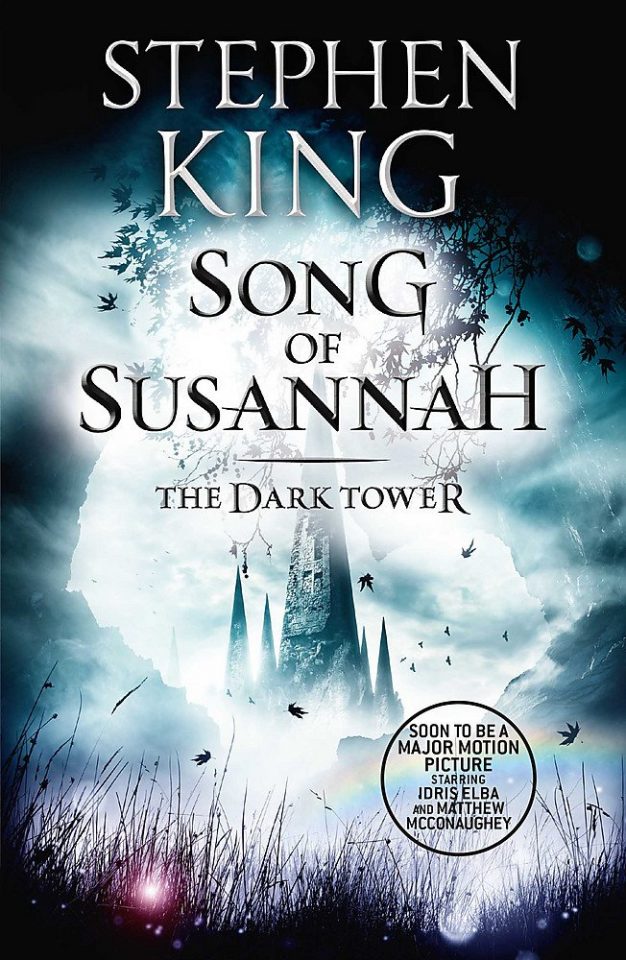
Roland’s group of Gunslingers enter a portal to a different world – our own. They are split up, sent to different places and time periods with vastly different objectives. Callahan and Jake race to relocate Susannah, heavily pregnant with a child that may or may not be a demon. Conversely, Roland and Eddie encounter a person of vital importance – the author of The Dark Tower novels…
I sigh when i think about this novel. My love for the series was bruised heavily by Wolves of the Calla but Song of Susannah is where it was beaten. I think of this novel and wince. Where the previous book was frustratingly confused, this one is just a gigantic mess.
Stephen King adding Stephen King as a character into his novels is barmy but i also respect his cojones to do such a thing. Song of Susannah is another Dark Tower novel that reads like it was written on one of King’s benders during his early days of alcohol addiction.
The plot feels unfocused and erratic to a ridiculous degree and meanders for its entirety. Another nail in the Dark Tower coffin.
Cell
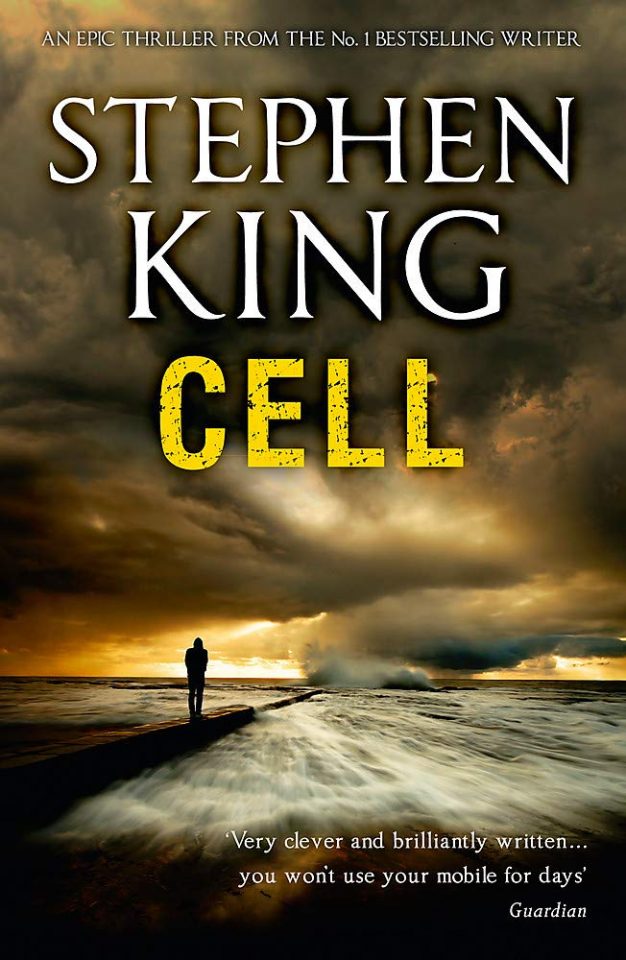
An artist witnesses an apocalypse before his very eyes as a virus transmitted through cell phone signals turns the population into homicidal savages. Halfway across the country, he risks his life to travel back to his family, before one of them is reduced to a hideous monster.
Cell isn’t a terrible novel but it does suffer from a lack of imagination. Worlds ending have been done before many times (some of those times by King himself – see The Stand) and shows like Black Mirror have become the gold standard in making horror about technology.
Cell reeks of “old man yells at cloud” energy (and there’s probably a cloud-based technology joke there somewhere too). There is little entertainment to be found here, unfortunately. A rare dud from King.
The Dark Tower V: Wolves of the Calla
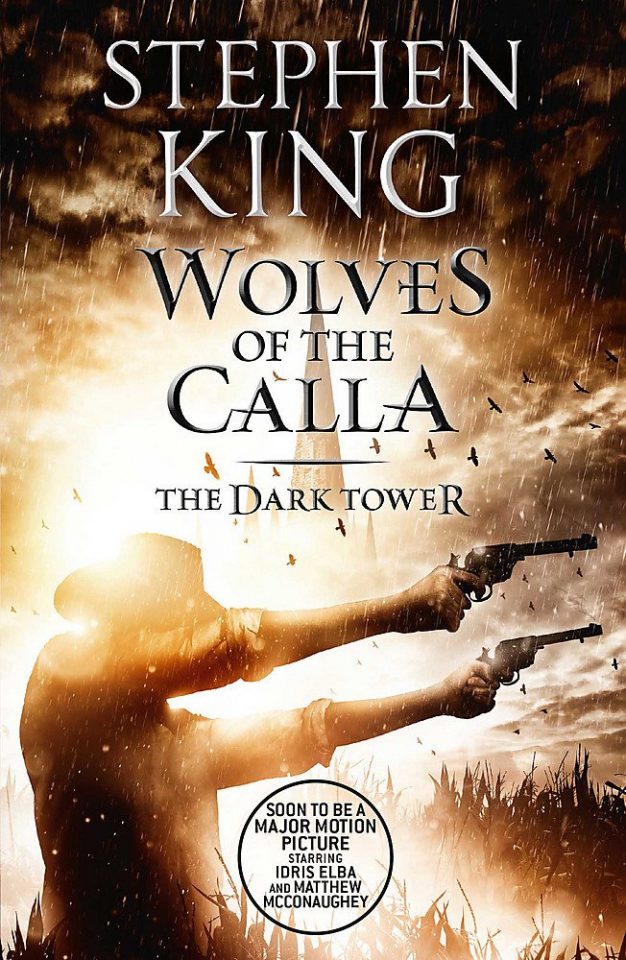
Roland the Gunslinger and his group arrive in Calla Bryn Sturgis, a town in peril from the Wolves, a gang of marauders who use anachronistic weapons to kidnap children. The group investigate and discover that the Wolves are not what they seem…and neither are the townspeople.
I hate this book. It is the 2nd worst novel in the Dark Tower series (and the next few aren’t superb either, for the most part). One element i did enjoy is the introduction of a new member of the group – Father Donald Callahan, a main character from the novel Salem’s Lot.
I think King finally lost control of his plot here and the tightness that has been present in the previous novels. In this one story alone, we get lightsabers from Star Wars, the Golden Snitch from Harry Potter, Doctor Doom from Marvel comics, talking robots and more.
The entire thing reads like King trying to capture the zeitgeist and the result is something like Ready Player One (a novel i loathe). I appreciate that King tried something new, a steampunk setting and the boons that accompany it but he also lost everything else here.
Enough to almost make me stop reading the series, if not for my demand to find out how it all ends. Fantasy lets us use our imaginations to experience wonders not possible in life but here, i found myself rolling my eyes.
End of Watch
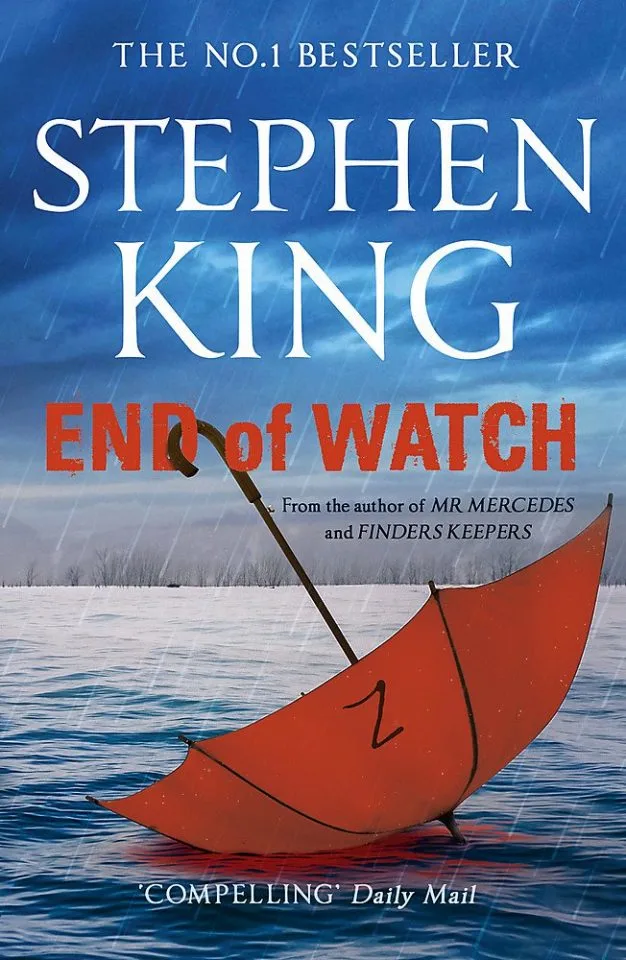
Brady Hartsfield, Mr Mercedes himself,has awoken from his coma with some new unnatural abilities. He intends to complete his original plan to not only commit atrocities against the innocent but to also finally put an end to his mortal nemesis, Bill Hodges.
What a comedown. Though Mr Mercedes is by no means a masterpiece, it was entertaining and a nice change to King’s usual fare. By the time that End of Watch arrived, it was already stagnant. Brady’s petulant nonsense has already become a source of eye-rolling instead of fear.
The entire situation is a shame as Bill and Holly are interesting enough to keep me reading to the end but the plot has the opposite effect, making me want to give up. As an ending, this is a huge letdown.
Elevation
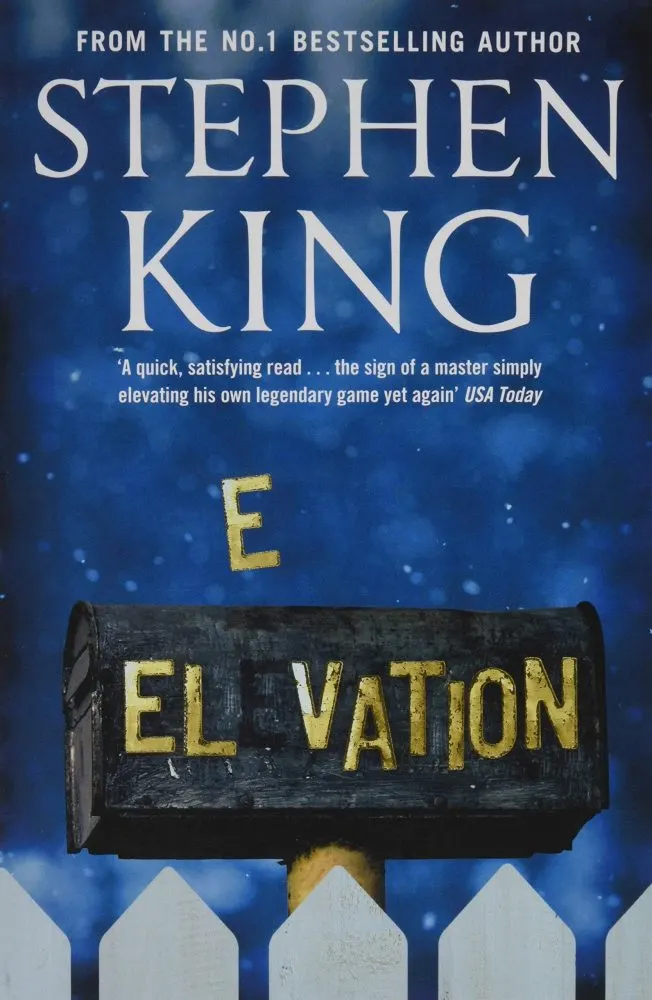
A man notices he is losing weight…sort of. Every time he steps on the scale, it says he has lost weight yet his appearance doesn’t change, no matter how much he ingests. The weight just keeps disappearing. What happens when he weighs less than the air around him?
Elevation was released as a stand-alone novella and i have absolutely no idea why. King can’t be struggling for money. Why not keep this in his back pocket for his next short-story collection? Admittedly that would have been the ill-fated and frankly pathetic If It Bleeds, but still.
Elevation is a strange entity in that it is extremely bland and entirely inoffensive. There was nothing particularly to like or dislike here. It just…exists. Perhaps the most baffling thing of all is that King already has a novel about extreme weight loss and that other one has actual personality. This is an odd one indeed.
Lisey’s Story
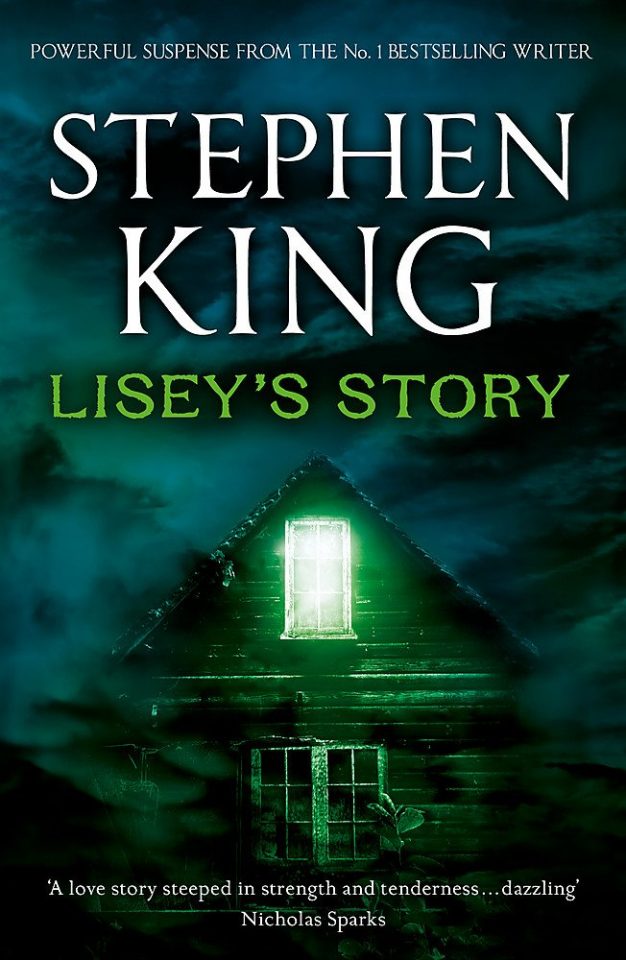
“Lisey Landon lost her husband Scott two years ago, after a twenty-five-year marriage of profound, sometimes frightening intimacy. Scott was a celebrated, award-winning, novelist. And a complex man.
Lisey knew there was a dark place where her husband ventured to face his demons. Boo’ya Moon is what Scott called it; a realm that both terrified and healed him, that could eat him alive or give him the ideas he needed to write and live.
Now, it’s Lisey’s turn to face her husband’s demons. And what begins as a widow’s effort to sort through her husband’s effects, becomes a perilous journey into the heart of darkness.”
I hate this book. I hate it. I hate the terminology used (“smuck”, “bool” and “SOWISA” mainly) and I hate the plot. The wishy-washy “oooooh a magical world of the imagination” is irritating and incoherent. Yet I can’t say this book is completely terrible, unfortunately for one reason: the presentation of grief and loss here IS fantastic.
As someone who has been through (some of) what Lisey goes through, I read parts of this and thought “yeah this is accurate”. I hate that King has nailed loss here when everything else in the book is either dire or simply not to my taste. A shame.
Finders Keepers
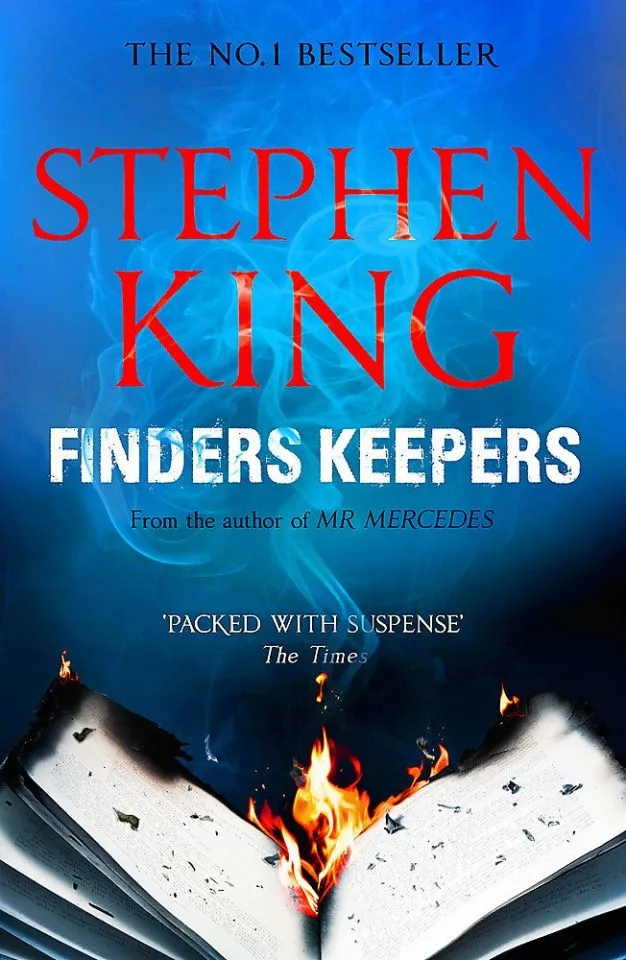
A famous author is murdered and his unpublished work is stolen. Before the killer is apprehended, he buries the treasure and plans to collect it upon his release. In the meantime, a teenager discovers the buried novels and plans to save his financially struggling family.
The killer discovers the theft of his alleged property and vows to get it back, leading to a collision with private detective Bill Hodges.
Bill’s second outing is weaker than the first but still an entertaining read. With Bill and Holly being such interesting characters, I welcomed more time and adventures with them. Unfortunately, there is a whiff of King going through the motions with this series rather than giving us his best work.
This novel, though acceptable, is rather stale in comparison to the previous Bill Hodges story. Part of me feels this is due to the step down in villain quality but as is visible in the placement of End of Watch, bringing back Brady Hartsfield wasn’t enough to save this series either. Tolerable.
The Regulators
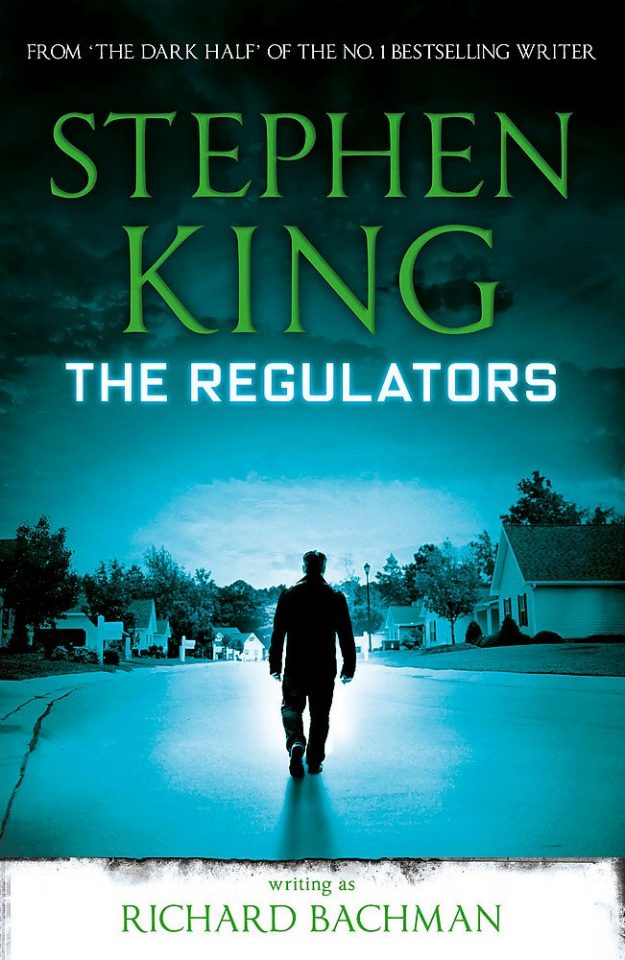
A small, suburban community becomes a warzone as strange vehicles patrol, taking potshots at the inhabitants and murdering them indiscriminately. Why is this happening? The only person who knows is also the culprit: an unusual child with a penchant for cartoons and cowboys.
The Regulators is a King novel that was released simultaneously with a parallel book called Desperation. Both concern the same characters, antagonist and themes, but have wildly different plots dealing with threats beyond human comprehension.
Answers are given to a degree but not stated outright. There isn’t a great deal to say about The Regulators as it’s an adequate story, told adequately. Don’t expect to be excited. You’ll find more chance of that in Desperation (though neither book is hugely impressive reading).
Read More: All Kazuo Ishiguro Books Ranked
The Eyes of the Dragon
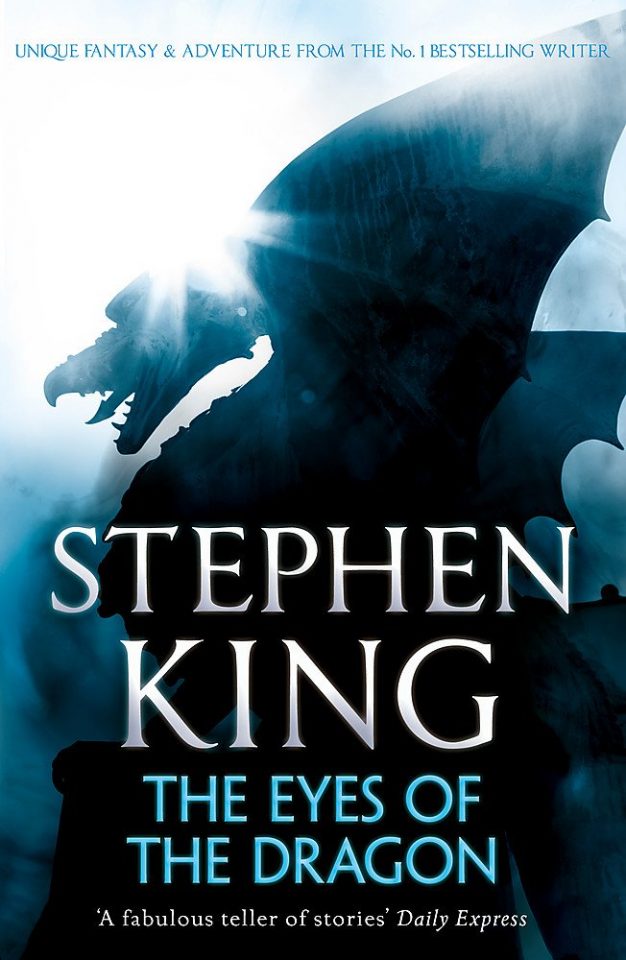
A king dies. His eldest son, the noble Peter ascends. He is just a teenager but he is good and just. But the king’s magician, Flagg, has plans for his own ascension and Peter is deposed, incriminated in the death of his father. Peter makes a final request while he rots away in his prison tower: his mother’s antique dollhouse…
This is a weird one. Not only is this book not horror, but some say it’s a children’s novel. King has stated it was written for his children…but the die-hard fans reacted badly, wanting King to stay within designated parameters.
This experience prompted him to write about how psychotic fans can be the enemy of an author (see: Misery). Eyes of the Dragon is by no means a bad book. It may have the honour of being the only King novel i can safely read to my (future) children. But i didn’t enjoy it, unfortunately.
The simplistic plot just couldn’t hold my attention. I still hope King spreads out into other non-horror territories, even if this one didn’t cut the mustard for me. My biggest positive about the book is another encounter with King Universe Big Bad, Randall Flagg/Marten Broadcloak/one of the other countless names he has.
Fairy Tale
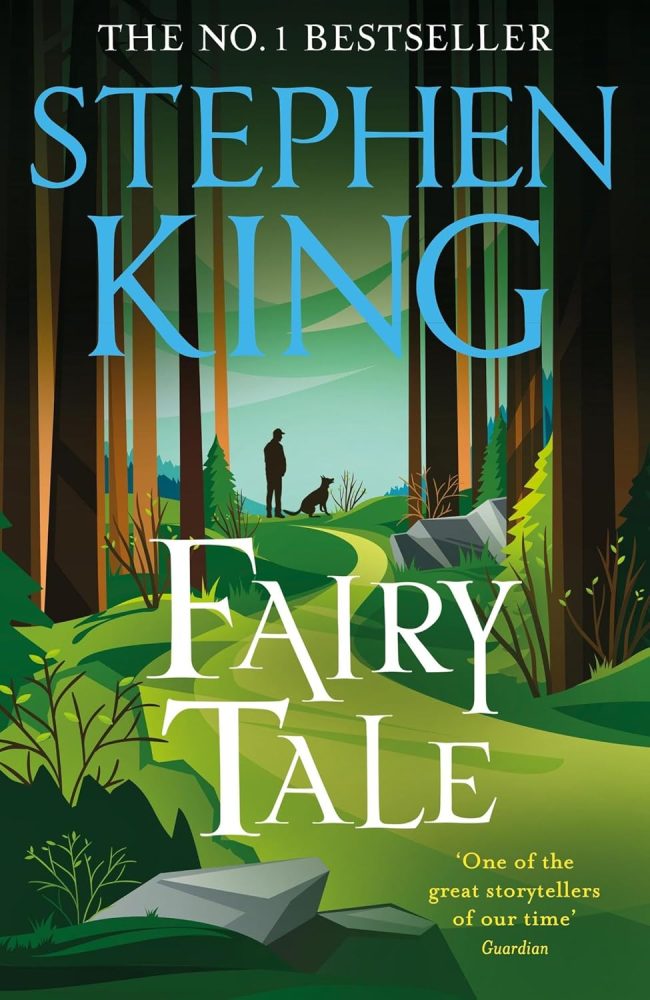
Teenager Charlie Reade meets a dog named Radar and his ageing master, Howard Bowditch—a recluse in a big house at the top of a big hill, with a locked shed in the backyard. Sometimes strange sounds emerge from it. Charlie starts doing jobs for Mr. Bowditch and loses his heart to Radar.
But when Bowditch dies, he leaves Charlie a cassette tape telling a story no one would believe. What Bowditch knows, and has kept secret all his long life, is that inside the shed is a portal to another world – a world where good is pitted against overwhelming evil, and a heroic boy—and his dog—must lead the battle
Fairy Tale is a book of 2 parts. Protagonist Charlie and his relationships with Radar and Howard are lovely and the entire reason for the plot is so that Charlie can help Radar live longer. It sounds like a banal set-up but anyone with an older pet can relate. But when Charlie enters the magical world of Empis, everything falls flat. Ironically, this is where the magic ends and Fairy Tale becomes a generic story with zero King flair.
In the first half, we are introduced to a complicated teenager struggling with his identity and morals. But as the book goes on…Charlie gets a bit dull. Fairy Tale feels like King is coasting a bit. There aren’t any real surprises. It’s a story you’ve read plenty of times before (but worse). It’s not bad. It just isn’t enough.
The Girl Who Loved Tom Gordon
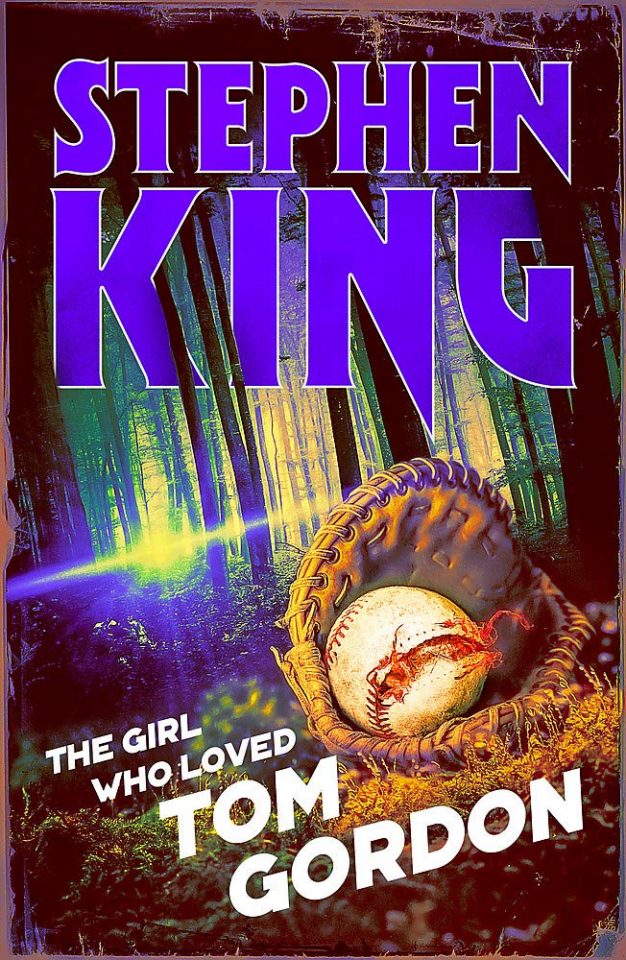
A young girl is separated from her family while on a hike in the woods and has only the most minor supplies to survive on. Loneliness and the potentially poisonous sustenance she finds contribute to a hallucinatory experience as rescue just does not seem to arrive. Although, being in a forest, the girl is not completely alone.
I felt very apathetic about this one. I don’t think this is necessarily the fault of the novel. I think there are a few personal factors that stopped this book from being higher on my list.
One is that the “Tom Gordon” in the title is an American baseball player and baseball features heavily in the plot and in the young girl’s hallucinations. Like most British people (i imagine), i have almost zero knowledge or interest in the sport.
I know that it resembles our school game called “rounders” and i recognise words like “pitcher” and “umpire” and so on. But anything else is gibberish to me. The other reason is the genre. Survival stories are like watching paint dry for me. Again, this list is my personal feelings only so you may feel completely differently.
Thinner
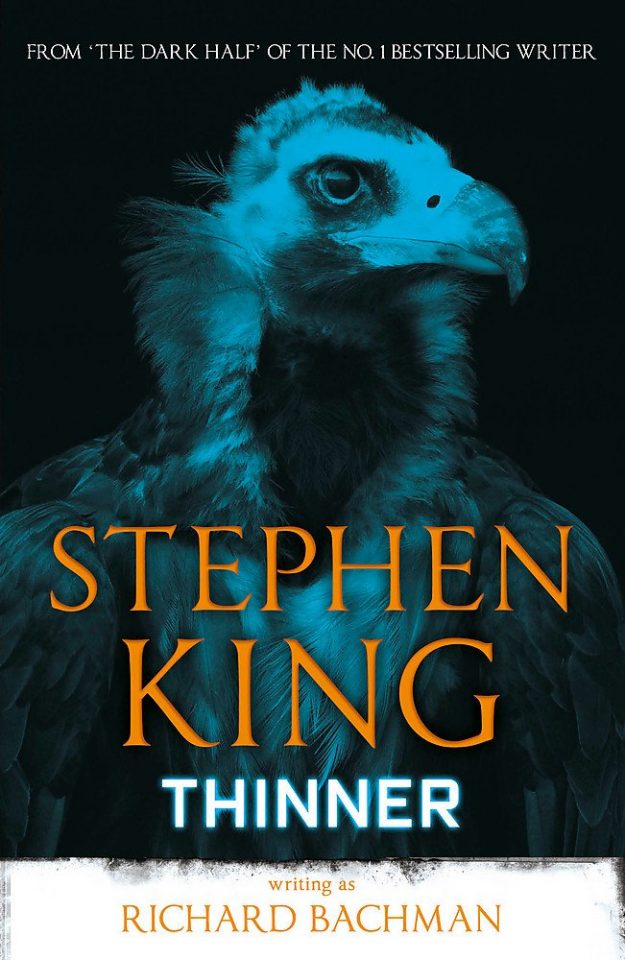
Billy, an arrogant, obese man accidentally kills an old woman with his car and then uses his connections as a lawyer to receive no punishment. The husband curses him with one word – “thinner”. Billy begins to lose weight rapidly…but it shows no sign of stopping, no matter what he ingests.
Another shorter novel, Thinner is a story that feels perfect for an episode of The X-Files or The Twilight Zone. There isn’t a great deal to this story, really. Man is bad, man gets cursed, man tries to save himself. Though the descriptions of Billy’s torment are gruesome, Thinner feels…half-hearted.
I didn’t really feel like Billy was actually apologetic for the suffering he caused. It seemed to me that he just tried to fix things out of self-preservation rather than an actual realisation. This isn’t a bad story at all but i did find it an unsatisfying one. Good ending, though.
The Long Walk
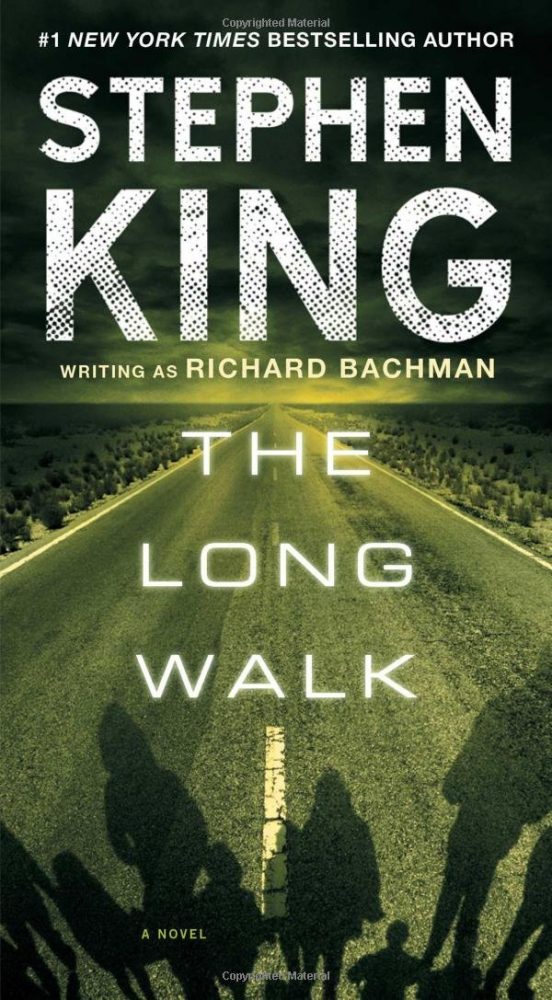
The USA is controlled by a military dictatorship. Every year, 100 boys are given the “opportunity” to take part in The Long Walk – a competition to see who can walk the furthest. The winner receives a prize of their choosing. The 99 losers will be executed.
I remember the day in university I was recommended this one. It took me a whopping 13 years to listen to that recommendation but I’m sad to say that the wait was not worth it.
The synopsis of this novel gave me goosebumps. The chilling dystopia we expect to encounter is left unfortunately vague, making the novel feel unfulfilling as opposed to mysterious. We receive glances at the world outside of The Walk but not enough to make us invested.
Children dying for the glory of the nation is an interesting concept in theory and also a sickening one but somehow the plot loses lustre quickly and becomes a slog. King is rumoured to have originally written this book before any other, which would make perfect sense. There are hints of undeveloped genius here.
King even went on to write about another dystopian competition but the other one would prove to be a vast improvement (see The Running Man).
Roadwork
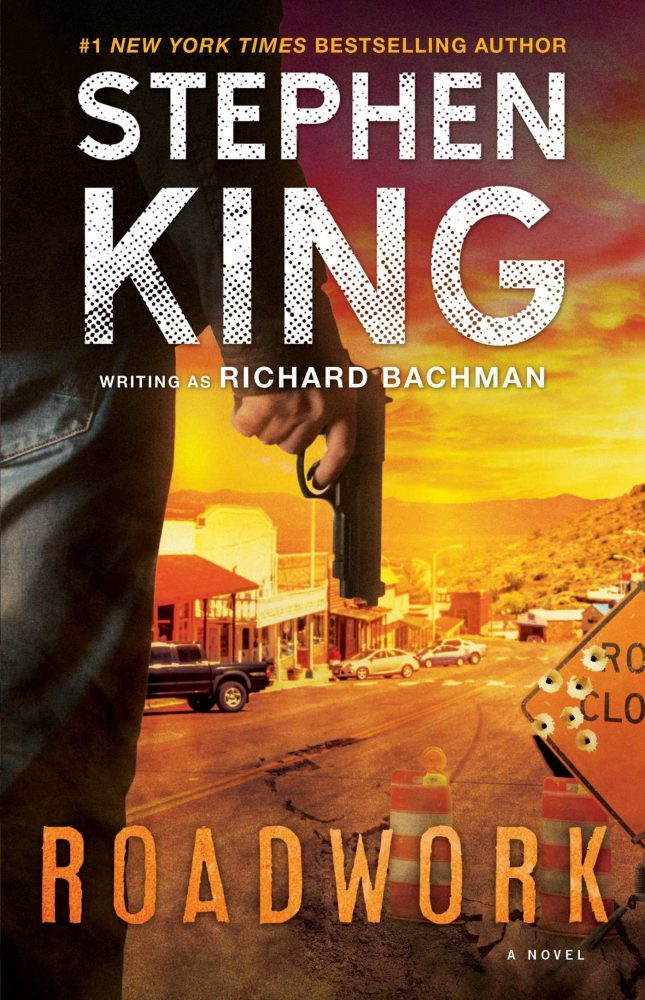
One man has had enough. Bart Dawes walks into a gun store and purchases two powerful killing machines. He begins to dismantle his life piece-by-piece until he is the only person left in his life. It’s him against the world. The only question is how much of an impact he can make on it before his time is up.
This is a vague synopsis. I am very aware of this. But the official synopsis is no clearer on what this book is actually about. “Man has breakdown” is probably not enough of a description to make something original or enough to draw the reader in and I am not eager to post spoilers.
The protagonist had experienced a devastating situation before the story began (one that I relate to more than I would like) and is even now experiencing difficulties but even so…I had absolutely no idea what Bart’s motivation was for his actions. Or to put it accurately, I couldn’t understand them.
Yes, the character is experiencing some turbulence but he uses this (almost mild) situation to cause pain and suffering to hundreds of others in his personal and professional lives. This is even more irritating because this story is well-written for the most part. It’s just a shame that the plot is literally just a man making a out of a molehill. I don’t know what else to say about it. Call this one a Wild Card.
Dreamcatcher
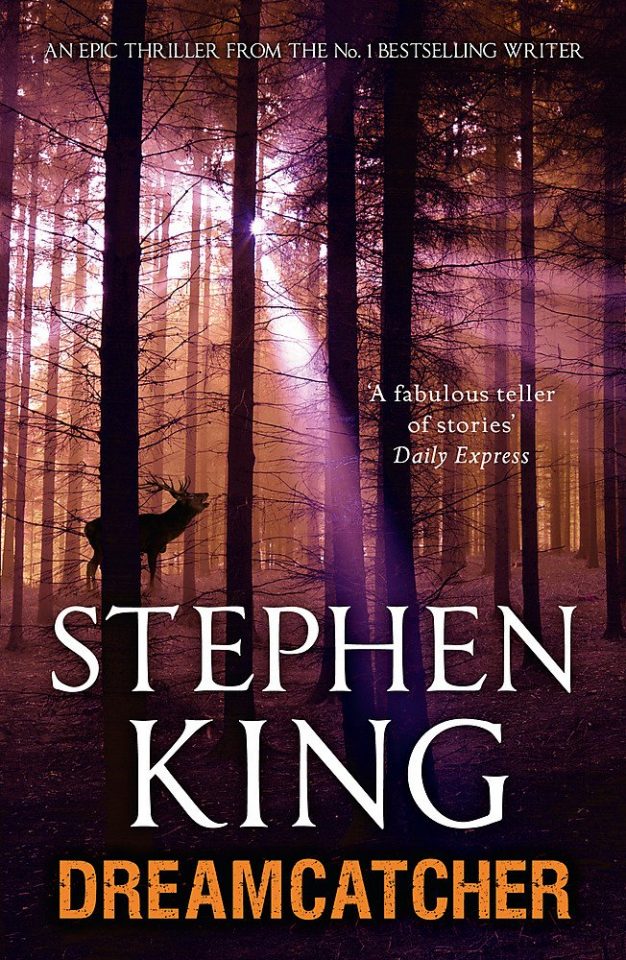
Four old friends meet up for their traditional hunting trip in the deep forests of northern Maine. A deep bond is shared between the 4 men and their childhood friend – a very special young boy with unique talents. Their trip will not go as planned. The 4 friends fight to survive as government helicopters and unexplained lights fly overhead.
I can’t put into words how disappointed i was reading this. I literally just finished reading it and don’t remember the last time a novel made me actually annoyed about reading it. The first third of the novel (around 200 pages) is a treat.
There is superb tension and body horror and even emotional – actual, gripping emotion. The relationship that the 4 protagonists have with their childhood friend known as “Duddits” is incredibly heart-warming and by far the best element of this story.
But when the chapter viewpoints start giving us the thought processes of the villains (human or otherwise), the veil slips and the novel descends into mediocrity and eventually becomes such an irritation that i felt negatively towards myself for not just closing the book and never thinking about it again.
Try this one at your peril – or give up after 200 pages and then watch the movie instead. That first section of the book is the only thing keeping Dreamcatcher so high on this list.
Sleeping Beauties
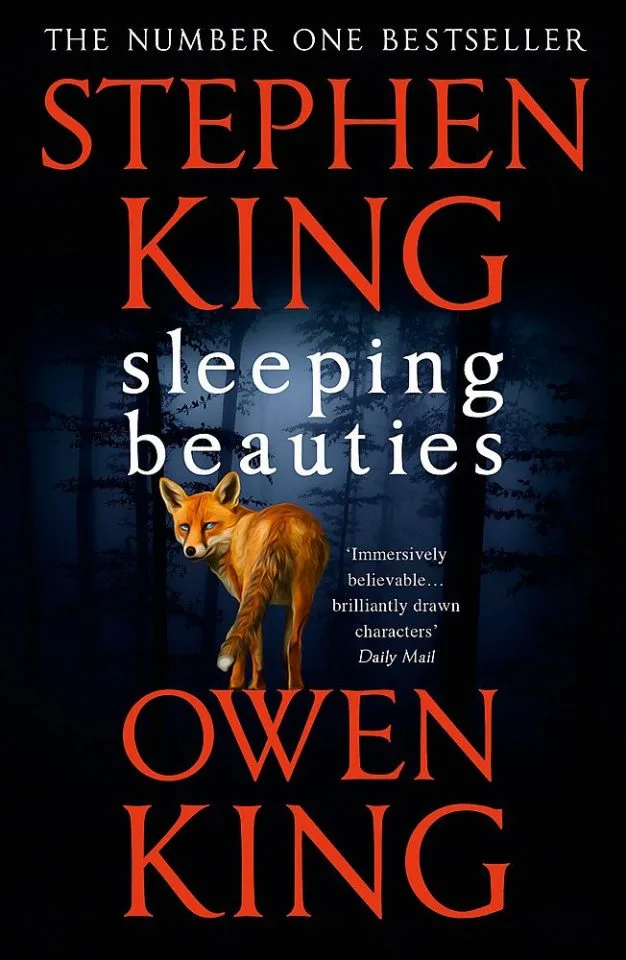
Women all over the world have been hit with a mysterious illness. When they fall asleep, they never wake up naturally. But somehow they still live, in a state of perpetual slumber. They can be awoken temporarily, but it is always accompanied by extreme violence. What could be causing such a phenomenon? And just who is the enigmatic Eve Black?
Technically this was co-written with King’s son Owen (as opposed to his even more talented son Joe Hill) but I’m still counting it. Sleeping Beauties is a rare novel that lives up to the hype.
And by that, i mean that i heard it was adequate and it ended up being adequate — no more, no less. I was really intrigued by the central premise — calling the disease “Aurora” made me chuckle – but the hefty book couldn’t keep my interest.
By the end, i was reading just out of curiosity. Some would say this is enough – the author took my money and gave me something i chose to complete. For me, this isn’t the case. I wanted more. Sleeping Beauties does have some cool elements (perhaps King’s most female characters in one novel) but it isn’t enough to make it stand out.
Nightmares and Dreamscapes
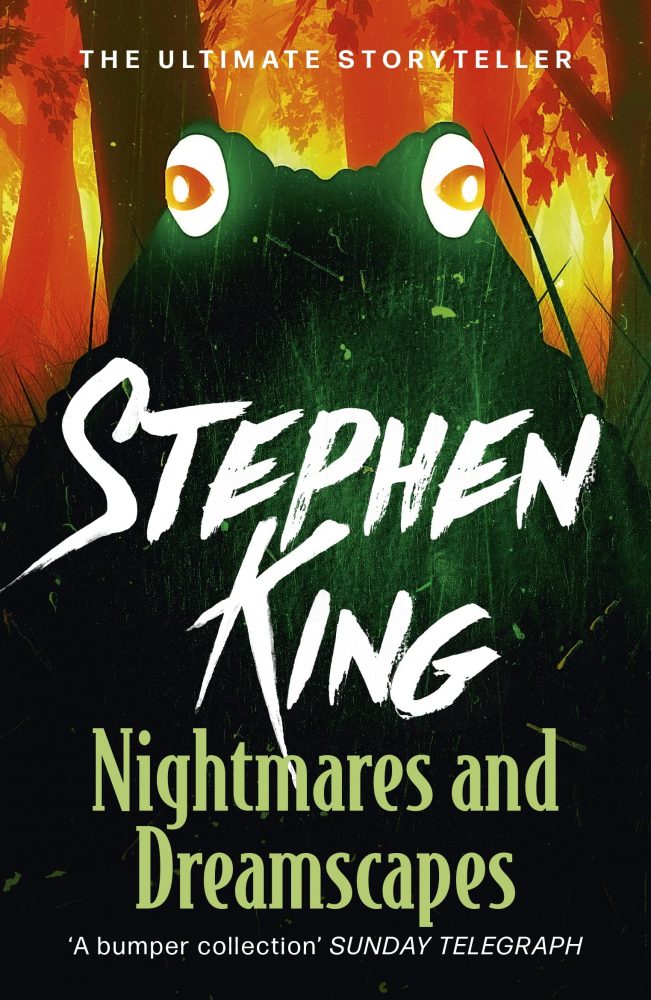
Highlight: The End of the Whole Mess – A man writes a journal for future study. The world is ending and he attempts to provide guidance to those who will survive…if any exist. I imagine you’ve noticed the first word of this review is “highlight” singular and not plural. There is no hidden meaning here – this collection is just not very good. It’s fine. Totally fine. But that’s about it.
I really struggled to put these stories as highlights because the entire thing is a dreary mess. There isn’t much here that I would say is bad, either. It’s just there. It didn’t entertain me, but still made me read all 1000 or so pages. The more I read, the more my optimism drained. I was almost begging for a great story, just one that would be at home in Night Shift or Skeleton Crew. I only read one.
The End of the Whole Mess is a quiet and subdued warning about how science is a double-edged sword — that it can make us gods but also create the end of all things. This story discusses both sides of the coin and is the only thing I read here that left a lasting effect.
I have thought about this a lot and the best description I can give for Nightmares and Dreamscapes is that it is a collection that has great writing but terrible, unoriginal plots. One of the main heroes turns out to be the villain? Check. Evil children? Check. Tourists find a weird place and get murdered? Multiple checks.
The original ideas that actually are here (for example, some sentient teeth and a severely disgusting ritual) are either over-written to the point of being boring or under-written to the point of being paper-thin. This book is 1000 pages of the colour grey. If Nightmares and Dreamscapes was a flavour, it would be vanilla. Some people like vanilla but it’s just not enough for me.
Desperation
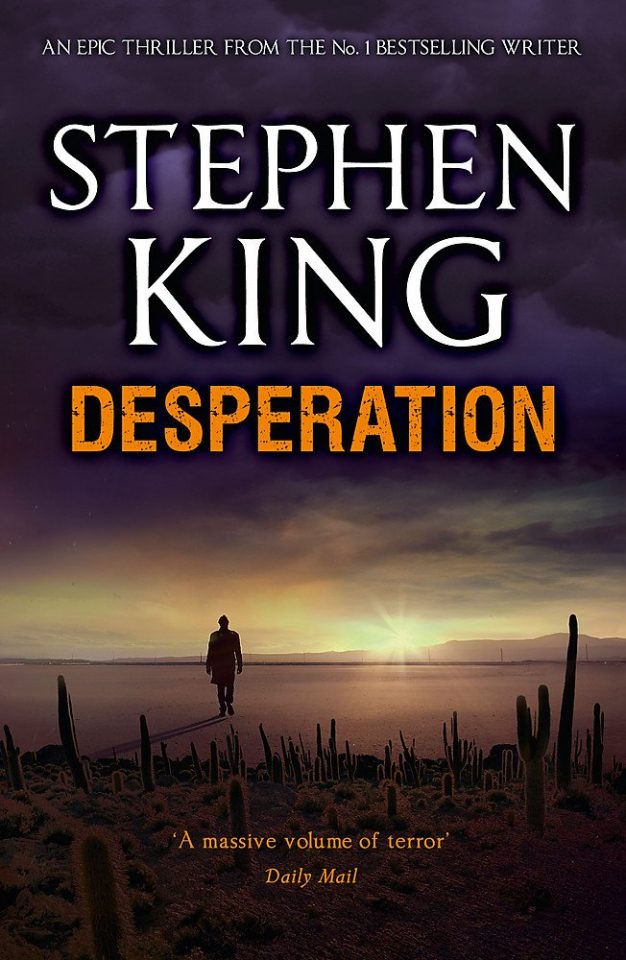
A long stretch of highway has become the playground for a lone cop to execute his own brand of law and order. Is this a case of a man drunk with power or is something else guiding the policeman’s hand? The answers are to be found in the abandoned mining town of Desperation, Nevada.
A superior story to its sister-novel (The Regulators), Desperation is a decent if unremarkable entry in the canon, featuring some fun but subtle references to The Dark Tower.
This is a novel of the grotesque, featuring some stomach-churning descriptions of not only the dead but also the living, as characters rot from the inside out, poisoned by the evil within them. A book of faith and fate, you can do much worse than Desperation. Tak!
Billy Summers
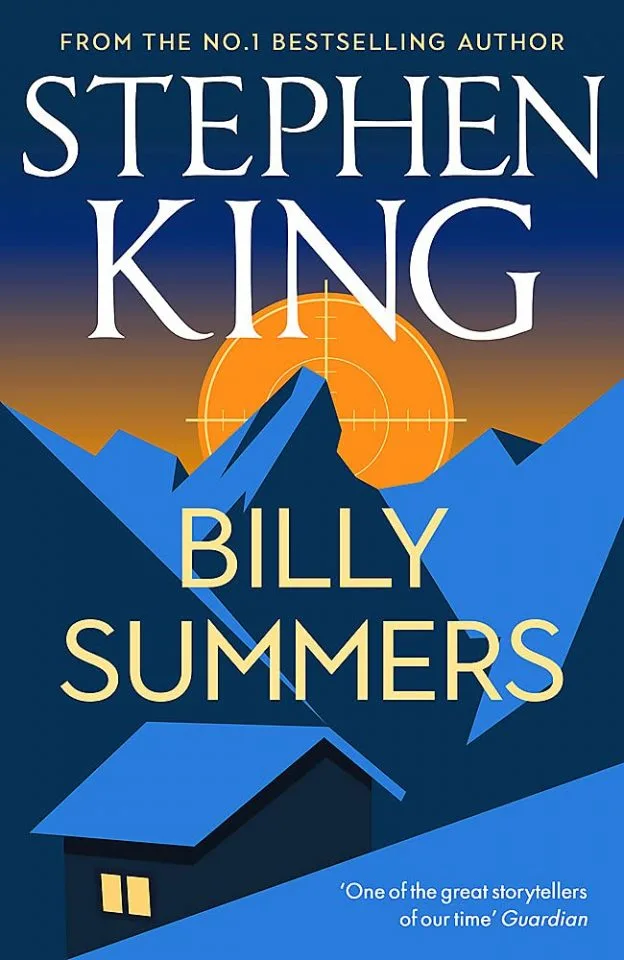
A moral code isn’t something usually associated with hitmen but Billy Summers fits the bill (no pun intended). Billy is told his target is a “big fish”, giving the chance for him to earn millions of dollars with just one bullet. Billy’s usual marks aren’t worth anywhere near as much money…which makes Billy suspicious. He plans to earn his final pay check and retire in peace but nothing quite goes to plan.
King’s newest novel (as of October 2021) is an enjoyable romp and far less serious in scope than his older novels. This results in Billy Summers focusing almost entirely on entertaining the reader (excluding some minor meditations on the concept of legacy).
The downside of this is that the novel has very little staying power and is guaranteed to leave almost no impact on the reader or on King’s legacy. There is an incredible reference to one of King’s best novels here though that put shivers down my spine. Almost worth a read for that alone.
Doctor Sleep
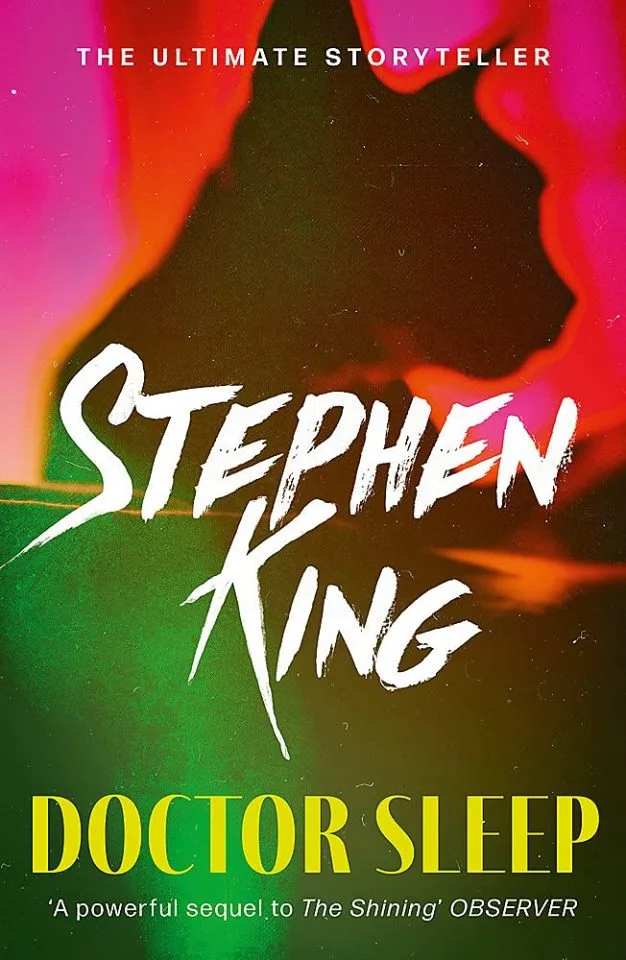
Danny (now “Dan”) Torrance, survivor of the Overlook Hotel in The Shining, is a 40-something alcoholic. Fearing he will become just like his father, Dan checks into Alcoholics Anonymous and vows to turn his life around.
His path leads him to the True Knot — a coven of “psychic vampires” who feed off the pain created when those with the ability to “shine” are tortured. The True Knot need to feed to survive and the their next target is someone closer to Dan than he realises.
This is one of the rare books that is inferior to the movie (thanks to master horror director Mike Flanagan). Doctor Sleep is another of King’s works (especially the later works) which delights and bores in equal measure. There are some fantastic elements here.
Rose the Hat (leader of the True Knot) is creepy and sexy at the same time and her group feel like manky, goblin people instead of the usual “cool” serial killers you find in media. Some of the scenes where the villainous group “feed” are obscene — violent and violating.
And the last 100 pages are extremely satisfying but unfortunately, i cannot say why due to spoiler reasons. But the rest of the novel feels rather safe and uninspired and i felt very little interest or empathy in the characters. A fair but disappointing sequel.
Holly
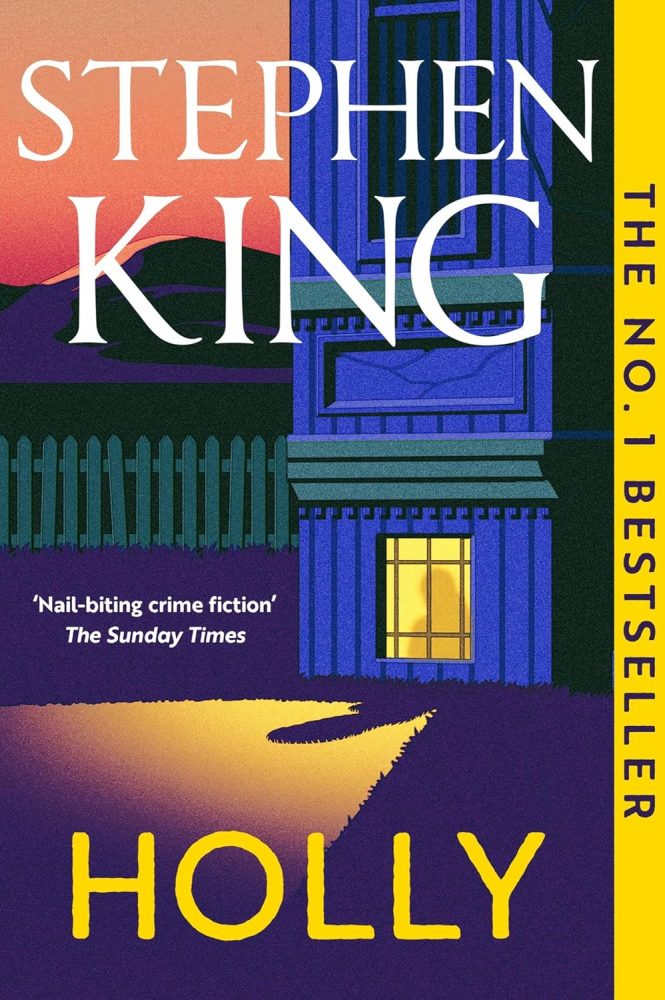
Private investigator and perennial King favourite Holly Gibney is back to solve another gruesome and upsetting mystery. People are being kidnapped every few years and Holly discovers there may be a link between all of the victims. The culprits are an educated octogenarian couple who have plans for their victims…but why are they only being fed raw liver? And what ghoulish reason could the culprits have for their actions?
A minor miracle has occurred: King has written another story about Holly Gibney that is not a huge waste of time. This is the sixth King story involving this character and the first since 2015 to not be terrible. A problem is that Holly herself is supremely irritating – a talented detective but also immature and neurotic to the point of aggravation.
The novel also proves that King is not of the world anymore – dialogue is embarrassing at best and anachronistic at worst. King also pushes his anti-Trump rhetoric in what seems like every chapter – a belief that, though correct, does result in the novel feeling like a Twitter rant. Holly ends very well but someone seriously needs to start telling King “no”.
The Tommyknockers
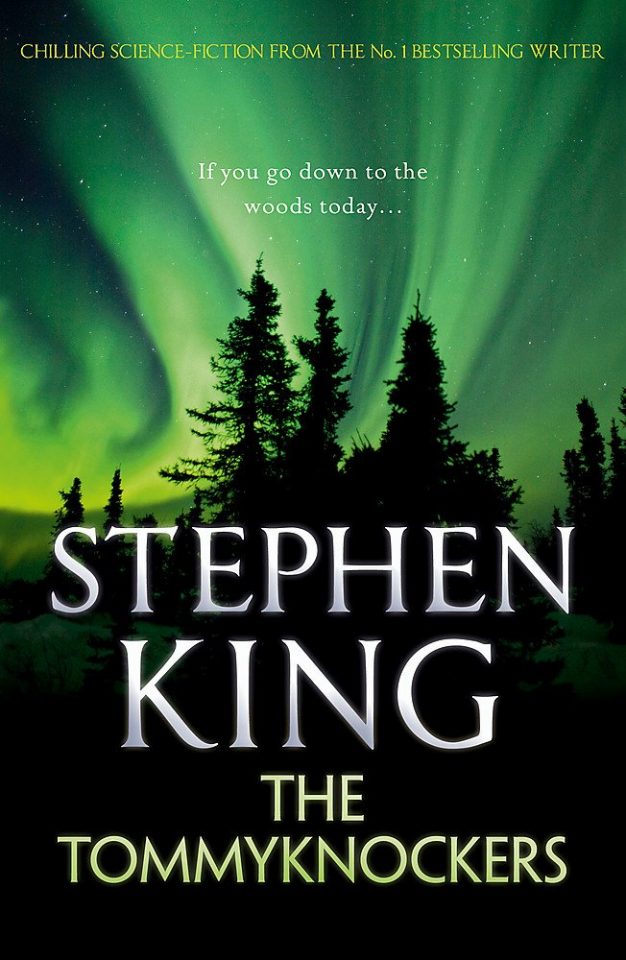
A small American town. Quiet. Friendly. Doomed. Bobbi Anderson walks in the woods and trips over a piece of metal. Something is stuck in the earth. She decides to dig it out and discover what the item is. But Bobbi’s desire to uncover the increasingly mysterious object becomes more than desire. And slowly, the townsfolk begin to be infected by the strange appeal of the dig.
I really struggled with this, in multiple ways. I struggled to want to read this at times…and other times, I struggled to put it down. I struggled to decide whether I should stop reading. And I struggled to say whether I liked the book or not. There were times during my reading that I was seriously impressed. The characters are interesting and their individual stories are often fascinating and exciting.
But unfortunately, the overarching plot of the novel is not my thing. This sci-fi story is decent…but it’s just not worth continuing and the 1000 pages is just not necessary. “The town goes crazy” is a trope that King sometimes aces but here, it doesn’t hit the mark.
The Talisman (with Peter Straub)
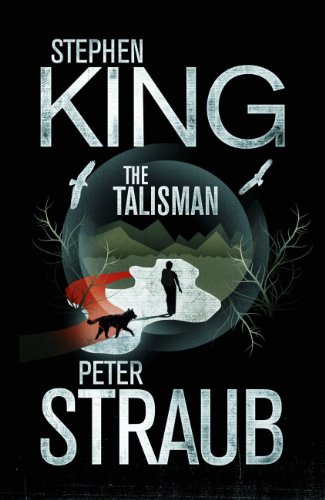
“On a brisk autumn day, a twelve-year-old boy stands on the shores of the grey Atlantic, near a silent amusement park and a fading ocean resort called the Alhambra.
The past has driven Jack Sawyer here: his father is gone, his mother is dying, and the world no longer makes sense. But for Jack everything is about to change. For he has been chosen to make a journey back across America–and into another realm.
The Talisman is an extraordinary novel of loyalty, awakening, terror, and mystery. Jack Sawyer, on a desperate quest to save his mother’s life, must search for a prize across an epic landscape of innocents and monsters, of incredible dangers and even more incredible truths. The prize is essential, but the journey means even more. Let the quest begin”
Once again, I am sad to say that this one is a “it’s not you, it’s me” book. The Talisman is well-written and unusual, reminding me very much of a more family-friendly version of The Dark Tower but for some reason, I didn’t really connect with it.
The events felt very much like a string of random occurrences rather than a journey created by cause and effect. King may be the Master of Horror but his record of fantasy stories is definitely a mixed bag. I won’t be reading the sequel so that won’t be on this list FYI.
Carrie
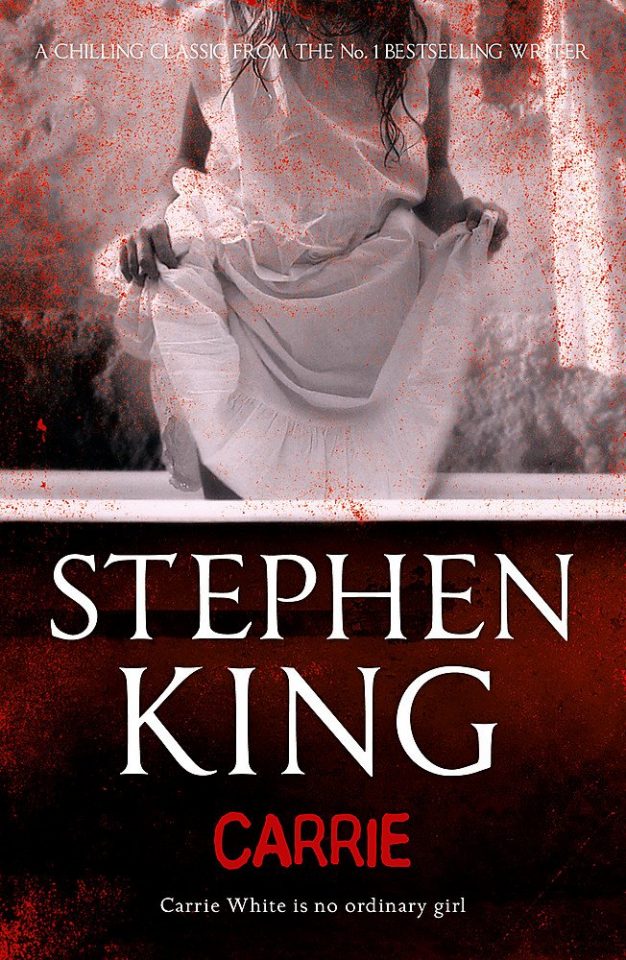
Carrie White is a naive and sheltered schoolgirl, bullied by her peers and abused by her family. Carrie has some unusual abilities and is considered sinful by her god-fearing mother. One final prank will unleash Carrie’s rage, turning what should be an important milestone in life into a nightmare – for Carrie and everyone else.
Carrie is a superb first step to take into the world of Stephen King. It was my first step. For a newbie, there is a bit of everything – family drama, crime, pseudoscience and, naturally, horror. King’s first published novel has been bettered many times since release but the themes and story beats King is known for started here.
The slow-build of atmosphere and dread – the knowledge that something bad is going to happen – to a crescendo is something that would become a calling card for the author. Commenting on the concept of bullying, religious fanatacism and also the mistreatment of the unknown, this is a good read but not one of King’s best.
The Dark Tower VII: The Dark Tower
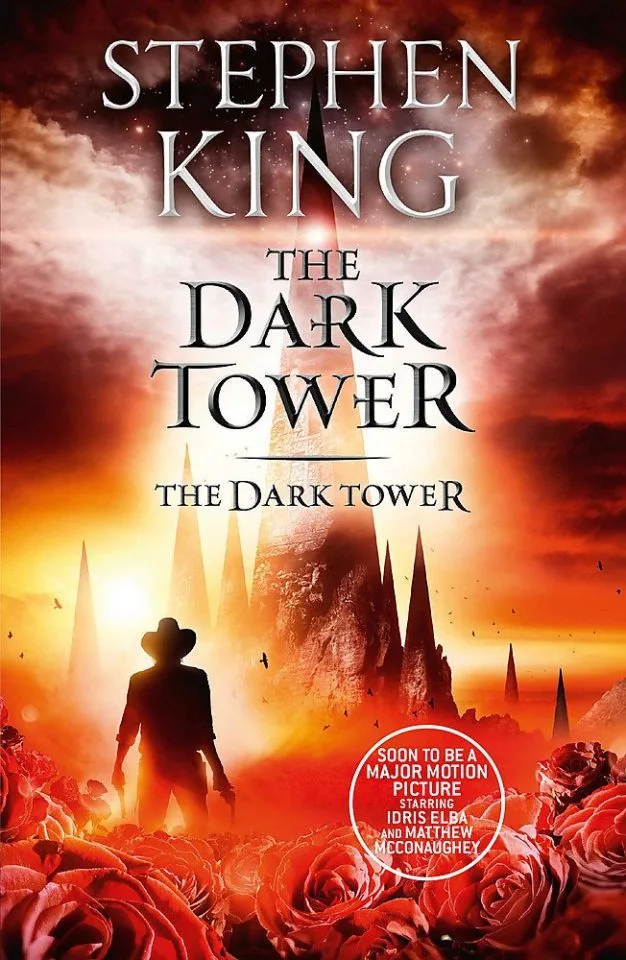
The Gunslingers approach their final battle. Susannah gives birth to her son, Mordred, who isn’t completely human and hunts his father with an iron will and a thirst for murder. There will be a showdown with The Man in Black and The Crimson King, and Roland will finally enter the Dark Tower and see what horrors lie within. Is this the end or the beginning?
I won’t pretend that the final novel in this colossal series is great. It isn’t. But there are moments where i was reminded of just how good the series had been at one point. There is a chase sequence in Castle Discordia that made me physically uncomfortable because it was so tense.
The opening — Father Callahan and Jake vs the cannibalistic inhabitants of The Dixie Pig restaurant is exciting and disgusting. And the ending…wow. Extremely controversial, the ending of the Dark Tower series will either ruin the entire thing for you or, if you’re like me, make you speechless for a good 20 minutes or so.
For me, the ending is a massive triumph and fits especially well with the lore that has been created throughout. It’s just a shame we had to wade through some sewage to get here.
Joyland
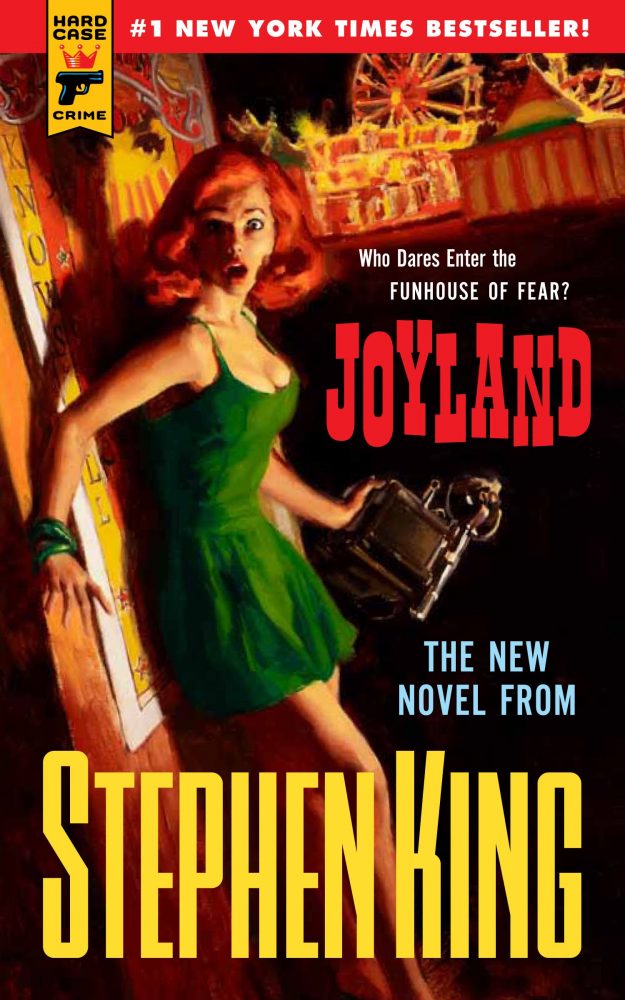
Teenager Devin decides to take a summer job at Joyland, an amusement park, partly to take his mind off of his woeful love life. His time at Joyland will bring many new experiences for Devin – his first job, his first sexual experience…and naturally, his first haunting and murder-mystery. They grow up so fast, don’t they?
Joyland was the first Hard Case Crime novel of King’s that i had encountered and had an absolute blast with it. Though published and advertised as a pulpy crime story, the horror elements King is infamous for are absolutely still present.
Although Joyland is not the novel that is going to cement the author’s legacy, Joyland is a joy. It is a simple and fun thriller that doesn’t take itself too seriously and actually benefits from a lack of urgency. There are no worlds ending here (just a few lives).
For the most part, it is a tale of a boy moseying through his summer having normal teenage experiences. However, the murder-mystery plot gives Joyland (the novel and the funfair) a terrific atmosphere and the idea that the entire plot is occurring on hallowed ground. I recommend this one.
Cujo

A sweet Saint Bernard is bitten by a rabid bat and changes from a gentle giant into a monstrous killer. A woman and child are locked in a broken-down car, baking in the heat. Their choices? Pray to be rescued and slowly die of thirst or try to rescue themselves and risk the attentions of the monster salivating outside.
I felt like this book was written just for me. I’m obsessed with dogs, horror and media taking place in one room. Then why was i so disappointed with Cujo? I’m not entirely sure but it may not be entirely my fault.
King has stated on more than one occasion that he has no memory of writing Cujo as he was in the midst of his battle with addiction and this somehow makes sense to me. Though it has all the ideas present to be a stone-cold classic,
Cujo feels rather aimless and anti-climactic. It probably sounds like i disliked this novel and it is absolutely not the case. It simply may be that my expectations were too high (which often happens when an author is referred to as the Master of Horror).
Something that does work well is the inner monologue of Cujo himself, beginning as a daft furry darling and slowly succumbing to his baser instincts. It’s awfully sad!
The Wind Through the Keyhole: A Dark Tower Story
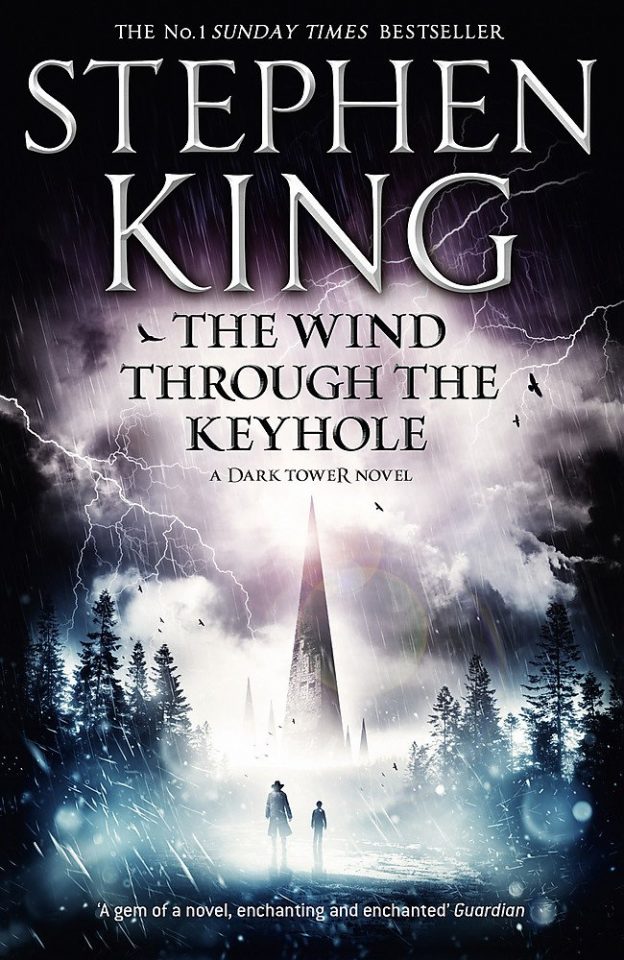
Taking shelter from inclement weather, Roland and his gunslingers settle in for the night. Roland uses this occasion to regale the group with another tale of his past – a quest to bring an elusive and murderous skin-man justice. During his exploits, Roland meets some interesting characters with bizarre stories of their own.
Released around 8 years after the finale of The Dark Tower, The Wind Through The Keyhole is set between Wizard and Glass and Wolves of the Calla. It’s an odd duck but a good one. Roland’s quest reveals a story within a story and is in the style of a more traditional fairytale (see also: The Eyes of the Dragon) than King’s usual fare.
The unusual structure of the novel makes the plot a little bit messy and unfocused but it doesn’t cause too much trouble and it is a delight to read another story in the Dark Tower universe that is great fun, unlike the previous 3 novels in the series.
This still doesn’t hit the heady highs of the first 4 novels but i didn’t expect it to. Considering this may have just been King messing around, it’s a good ‘un.
Mr. Mercedes
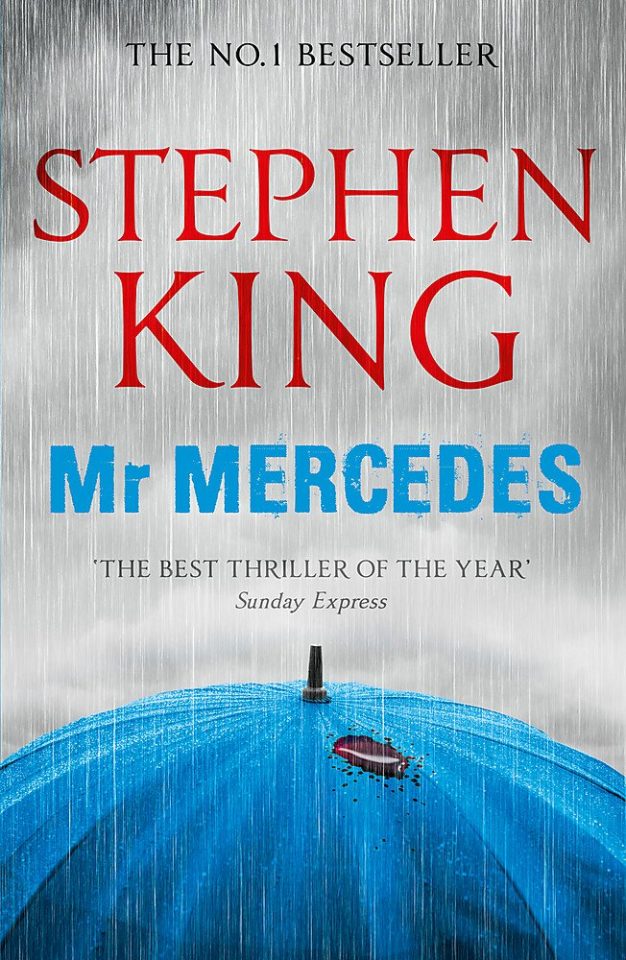
Bill Hodges is an overweight and suicidal retired police detective who is not suited to his new sedentary life. He receives a message from someone calling themselves “Mr Mercedes”, the perpetrator of an unsolved case and Hodges greatest failure. Bill decides to use his retirement to right that which has been wronged, regardless of the mental and physical toll.
The first in the Bill Hodges trilogy is the best one by far. The villain, Brady Hartsfield (don’t worry, his identity is not a secret) is a twisted, disgusting creature with an admittedly pathetic backstory. Bill is a wonderful protagonist too.
A grumpy old goat, I guffawed at his stubborn yet loveable manner and cheered at his determination to save the innocent. Mr Mercedes also introduces us to autistic wunderkind Holly Gibney, a fascinating character ultimately left to struggle in the mire of the mediocre (the Bill Hodges sequels) and the obscene (The Outsider saga). A cool crime caper.
Cycle of the Werewolf
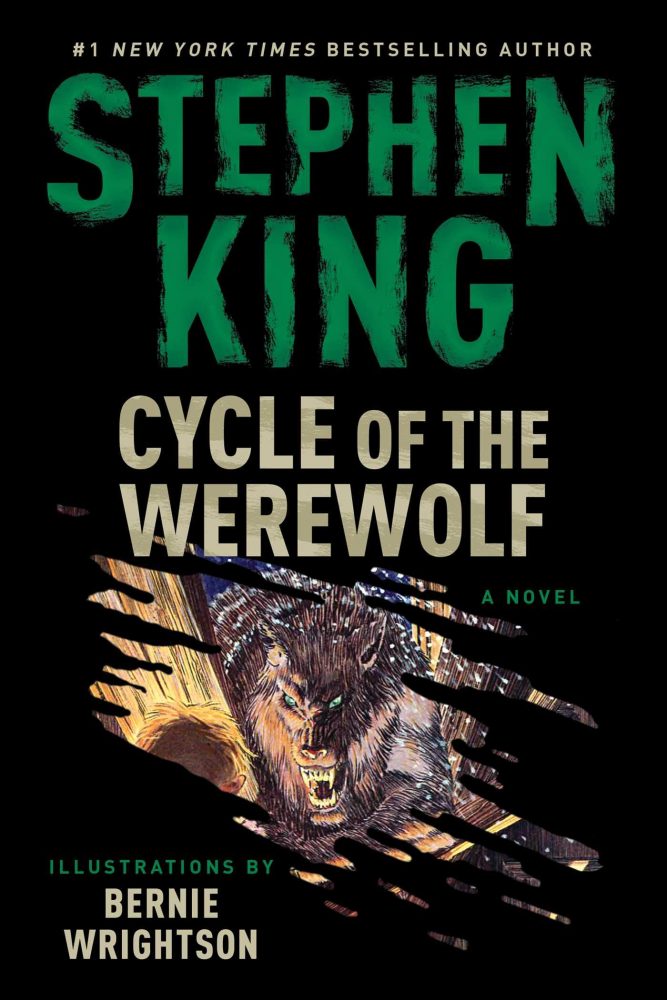
“Terror began in January – by the light of the full moon… The first scream came from the snowbound railwayman who felt the werewolf’s fangs ripping at his throat. The next month there was a scream of ecstatic agony from the woman attacked in her cozy bedroom. Now scenes of unbelievable horror unfold each time the full moon shines on the isolated Maine town of Tarker’s Mills.
No one knows who will be attacked next. But one thing is sure. When the full moon rises, a paralyzing fear sweeps through Tarker’s Mills. For snarls that sound like human words can be heard whining through the wind. And all around are the footprints of a monster whose hunger cannot be sated…” I’m not sure why this was a stand-alone release – it should have been one of the stories in Skeleton Crew instead as they were released around the same time.
Not complaining much though — this was a great little novella. Some smart, snappy writing here and all killer, no filler. King has dealt with vampires, ghosts, aliens and plenty other monsters so a werewolf story is a treat. Not much else to say. Good stuff!
Salem’s Lot
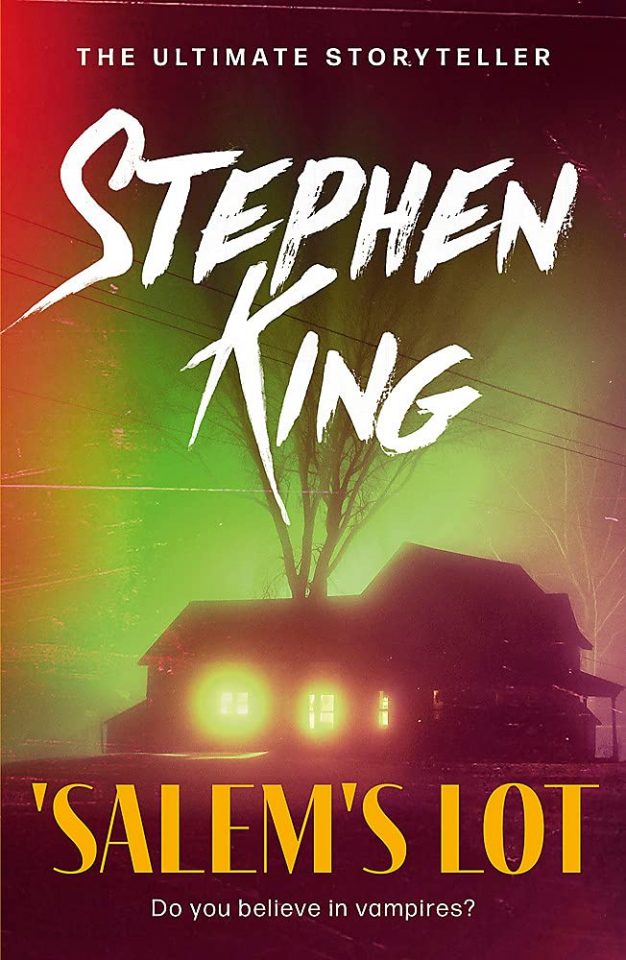
A writer returns to his hometown to finish his new book in peace. However, a mysterious stranger named Kurt Barlow has moved into town and never seems to appear in the daylight. ‘Salem’s (short for ‘Jerusalem’) Lot was one of King’s earliest novels and it shows, for better and for worse. The book is languorously written, echoing the stalking menace of Barlow as he begins to corrupt the townspeople.
Though the novel is not a short one, it is probably too short for the amount of plot and to adequately flesh out all of the characters and the interesting lives only hinted at. King has also written a few short stories which connect to ‘Salem’s Lot and, unfortunately, all of them are superior to the novel. This is still an enjoyable read though.
Read More: Essential Vampire Books
Insomnia
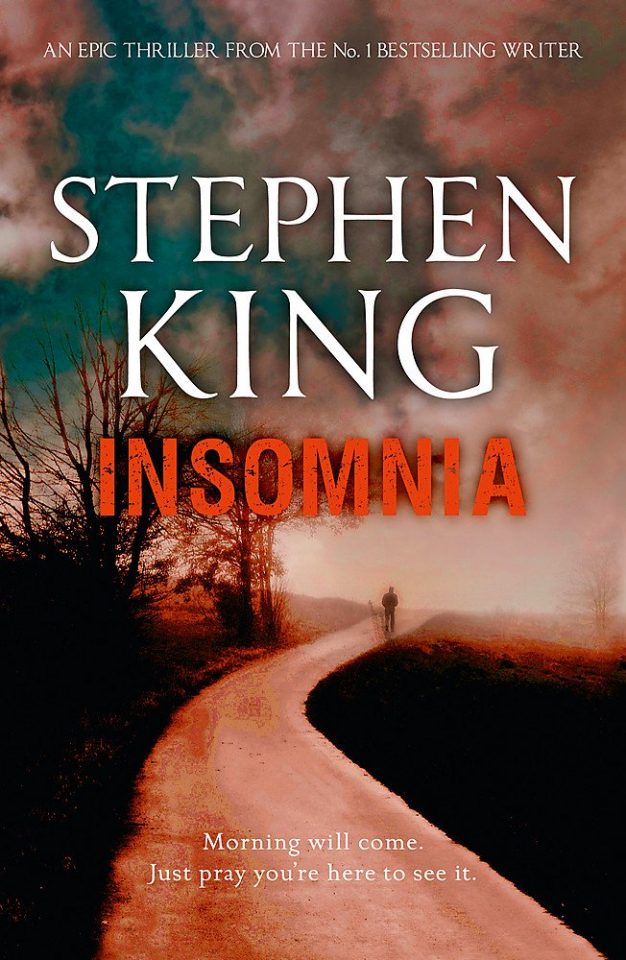
Septuagenarian Ralph Roberts can’t get enough sleep. It’s commonly said that older people need less sleep but for Ralph, every night sees him wake that little bit earlier than the night before. Ralph also sees things – auras of colour and people who can’t possibly be real – can they? Unbeknownst to Ralph, he has been conscripted into a war he barely comprehends: a fight for the fate of a tall, Dark Tower…
Ok so let’s get it out of the way: Insomnia is bonkers. There are psychic powers aplenty, suggesting a campy, silly and fun story yet the majority of the plot is grounded, concerning abortion rights and the (apparently endless) battle between the pro-choice and the misguided, right-wing lunatics.
The leader of said villains is a fascinating one, capable of intense violence and sneering cruelty while retaining a sly, tactician nature. Unfortunately, he is barely used outside of the first 100 pages and the denouement. The rest of the antagonism comes from an underling named “Bald Doctor #3”.
These “Bald Doctors” are characters inspired by Greek myth that feel bizarre and out-of-place but thankfully, the entire novel is a contradictory one. Many things that shouldn’t work, do.
There are issues, however. Insomnia feels very haphazard, injecting odd ideas and story beats amongst the good ones. It relies on a great deal of intangible elements such as the colourful auras surrounding all of the characters and it doesn’t feel completely necessary.
It is also far too long and padded. I’d say a whopping 200-300 pages could have been cut from this one. Very enjoyable reading but it grates eventually.
Everything’s Eventual
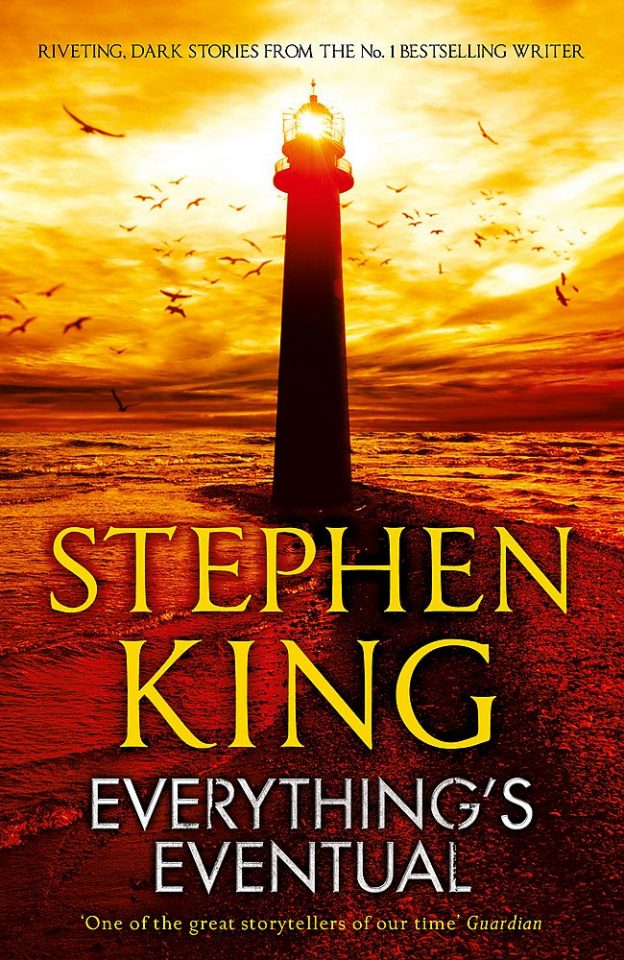
Highlights: The Little Sisters of Eluria — Roland, The Gunslinger himself, is injured by mutants. He is raised back to health by The Little Sisters – nurses who seem benevolent but may actually be malevolent.
The Road Virus Heads North — A man notices that the painting in his office seems to be moving when he looks away. The grinning figure in the portrait appears to be travelling closer to his location with every glance.
I have changed my mind about this collection over the years. This was my first foray into King (along with Carrie), something i picked up on a whim at Gatwick airport en route to a family holiday. At the time, i was entranced. Story after story blew me away.
Since then, I’ve read around 50 of King’s published works and many of them are better. The Little Sisters of Eluria is majestic, though. I had no idea what The Dark Tower was at the time but this story made me salivate at the thought of a full series of similar escapades.
The Road Virus Heads North is shorter but almost as good, scaring the bejesus out of me (even though the concept isn’t particularly original). The rest of the stories are good, if unremarkable, making this one of the weaker collections overall but still an interesting and often thought-provoking book.
The Dark Tower II: The Drawing of the Three
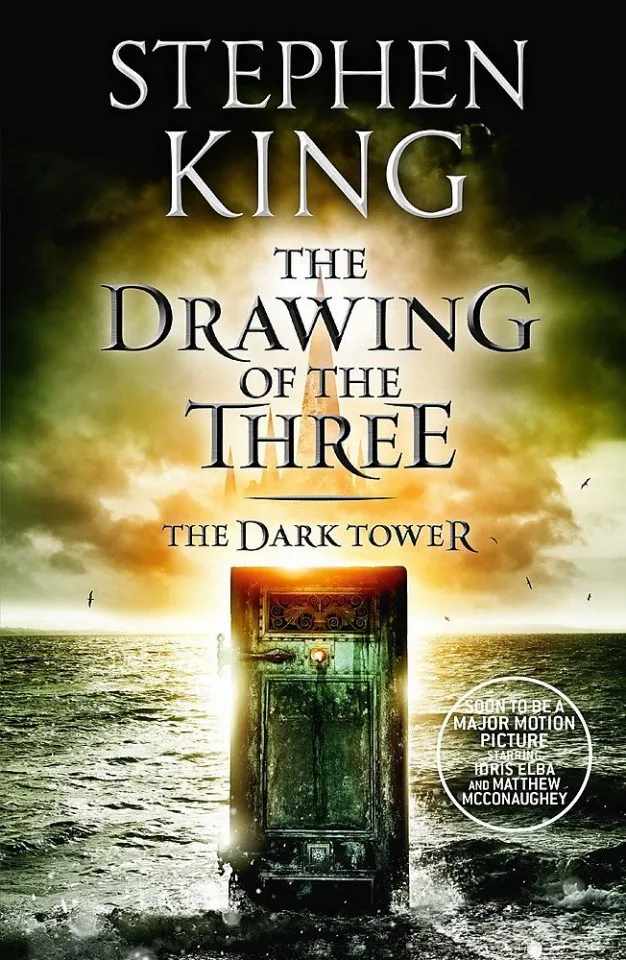
Set only a few hours from where The Gunslinger ended, Roland is severely injured by a new threat. His path to the Dark Tower will require him to open 3 doors which lead to 3 very important people for his journey. He heads toward the tower, slowly succumbing to his infected wounds…
The second Dark Tower novel is a difficult one to describe. The first half is wonderful. We see Roland at his weakest and have a brilliant, action-heavy sequence with his newest pal, Eddie Dean. We also meet another new character, Odetta — a Black amputee in a wheelchair who is strongly invested in the civil rights movements of the 1960’s (DT has time jumps, don’t worry too much).
However, Odetta also has dissociative personality disorder and often becomes Detta – an aggressive mirror image of Odetta. I’ve heard multiple opinions on Detta as a character but many people agree that she is a pretty offensive racial stereotype in her actions and speech.
And this isn’t good enough, not even for the late 80s when it was released and definitely brings the tone and quality of the novel down.
Full Dark, No Stars
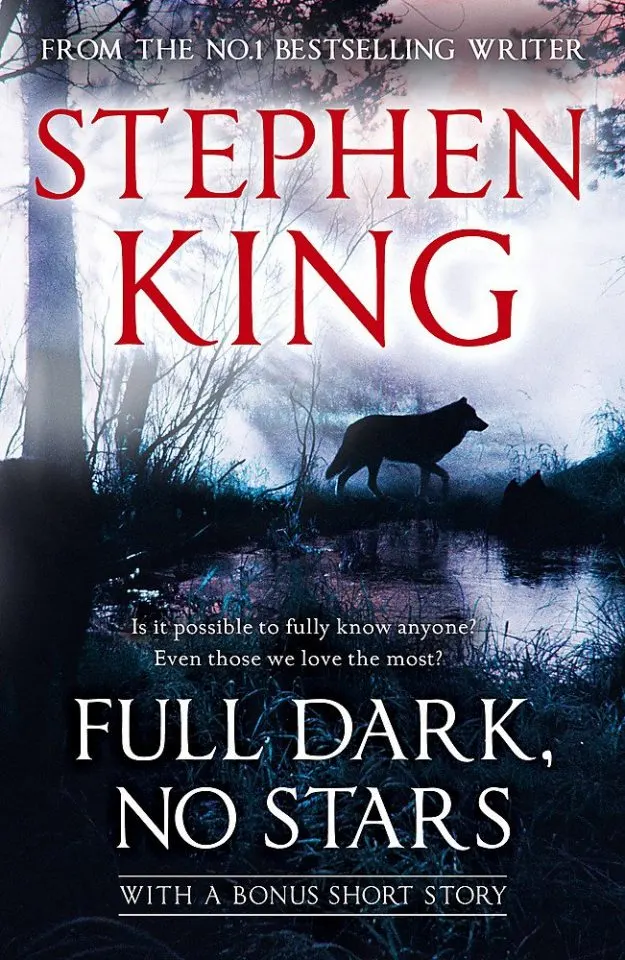
Contains 4 novellas:
1922 — A farmer and his son are mistreated by a tyrannical matriarch and decide to kill her, an event that has unforeseen and long-lasting consequences for them both
Big Driver — A mystery writer is assaulted and left for dead by a trucker. She lives through the event and vows revenge
Fair Extension — A creepy stranger offers a dying man a way to live an extra 15 years. But it comes with an ethical dilemma.
A Good Marriage — A woman realises her boring but loving husband may not be the man she thought he was.
The 4 stories here are all very enjoyable, 1922 in particular being an excellent horror story. Both 1922 and Fair Extension are morality tales but seem to give conflicting messages on how morality works – one saying that our deeds come back to haunt us and the other saying that sometimes, evil wins. I suppose this reflects just how complex morality can be.
Big Driver deals with rape culture and the idea that sometimes there are more consequences for the victim than the perpetrator. A Good Marriage is unremarkable but satisfying. A great bunch of stories.
Later
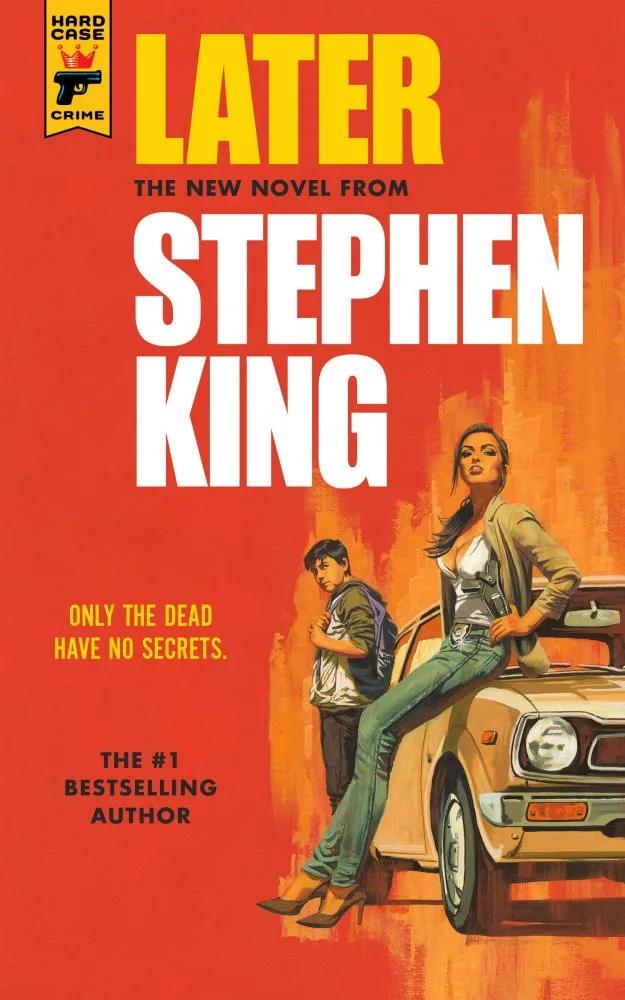
Teenager Jamie has the ability to see and speak to the dead, an enviable or unenviable skill depending on your point of view. When his mother’s partner, a corrupt cop finds out, it sets off a chain of events culminating with a meeting with the dangerous terrorist nicknamed Thumper, who refuses to let his own death get in his way.
The most recent in King’s Hard Case Crime series, Later is the best of the bunch. The previous two books were more crime novels than horror but Later straddles the two genres. Though this book is not a game-changer by any means, it’s sharp and creepy and thoroughly enjoyable. This works well as a shorter novel but i would be very interested to read a longer novel with a similar plot.
One of the events in Later involves Jamie having a discussion with a recently deceased author and passing that information on to his mother for her profit from his ideas. I was riveted by this idea. Another concept is something i won’t spoil but Later is full of exciting ideas that keep it from being just another notch in King’s repertoire.
The Institute
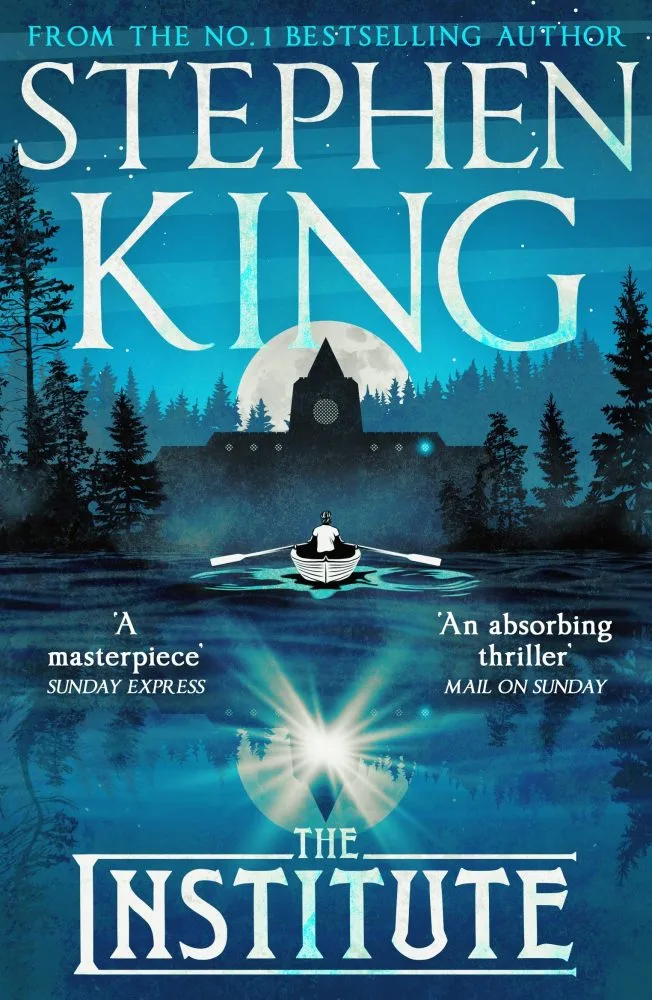
12 year-old genius Luke is kidnapped from his bed. His parents are murdered in their sleep. He is transported to The Institute, a concentration camp for children with “talents”. The children are tortured until their latent telekinetic or telepathic abilities are released.
They are then moved to the other side of The Institute – where they are never heard from again. Luke is determined to escape, save his friends and bring justice to those who have caused so much pain. But why are the children being kidnapped in the first place? What are their abilities being used for? And what fate awaits them?
The Institute is an enjoyable story, reminding me of a twisted version of X-Men, but like some of the other stories on this list, has very little actual impact on King’s legacy. But that’s ok! Not every book has to be important or insightful. It’s ok to just be a fun read.
Something positive about this novel is just how evil the antagonists are. I felt physical hatred for Mrs. Sigsby and her underlings and this pure vitriol fuelled me to finish the story as soon as possible. That makes it sound like i needed something to keep me going which is not the case at all. This is a delightful novel. It just didn’t make me feel anything other than enjoyment.
Under the Dome

A small town is suddenly cut off from the rest of the world when an energy field encircles it. Nobody can escape and no aid can be given to the town. Nothing physical can cross the barrier. The ensuing power vacuum results in a dangerous conflic
